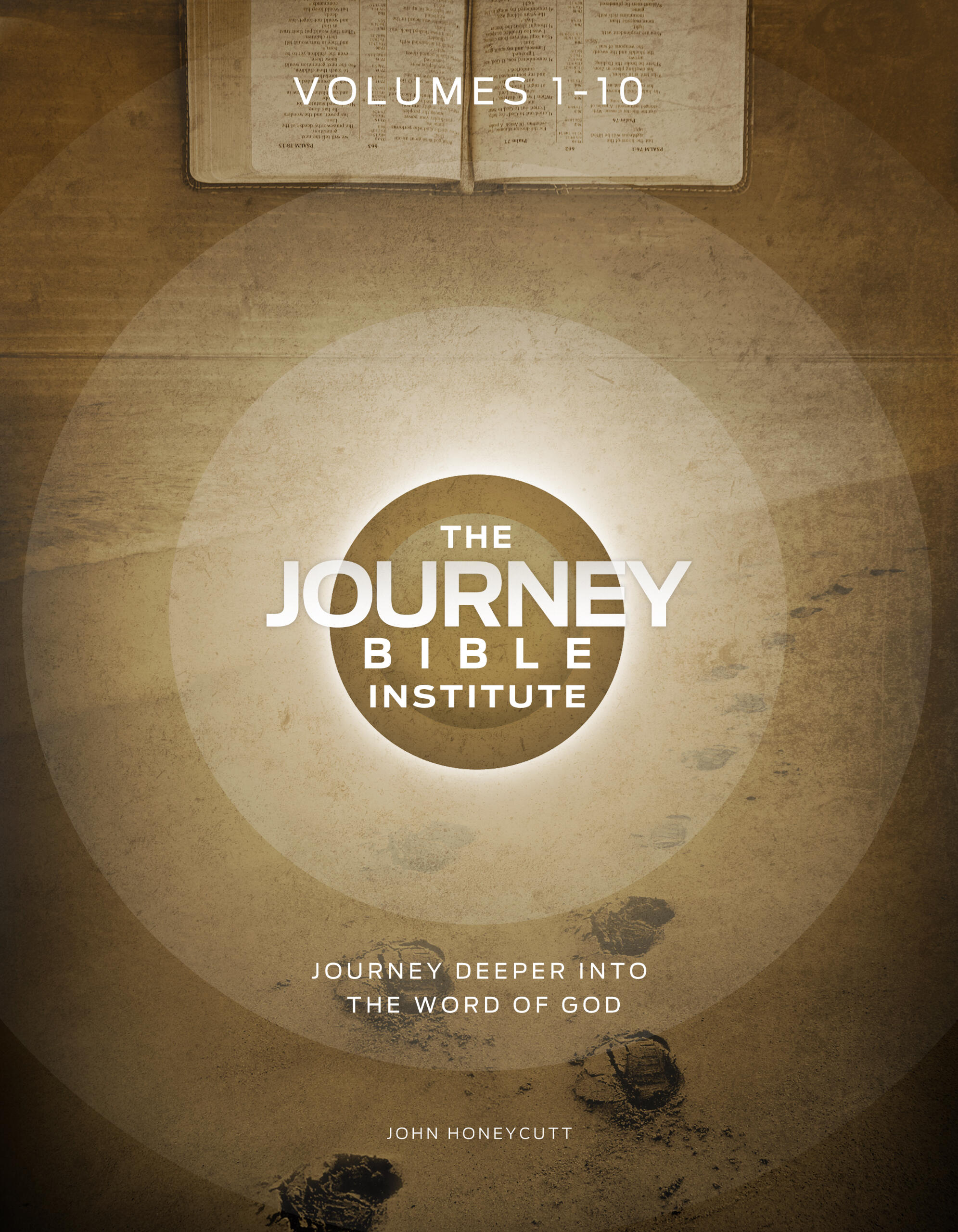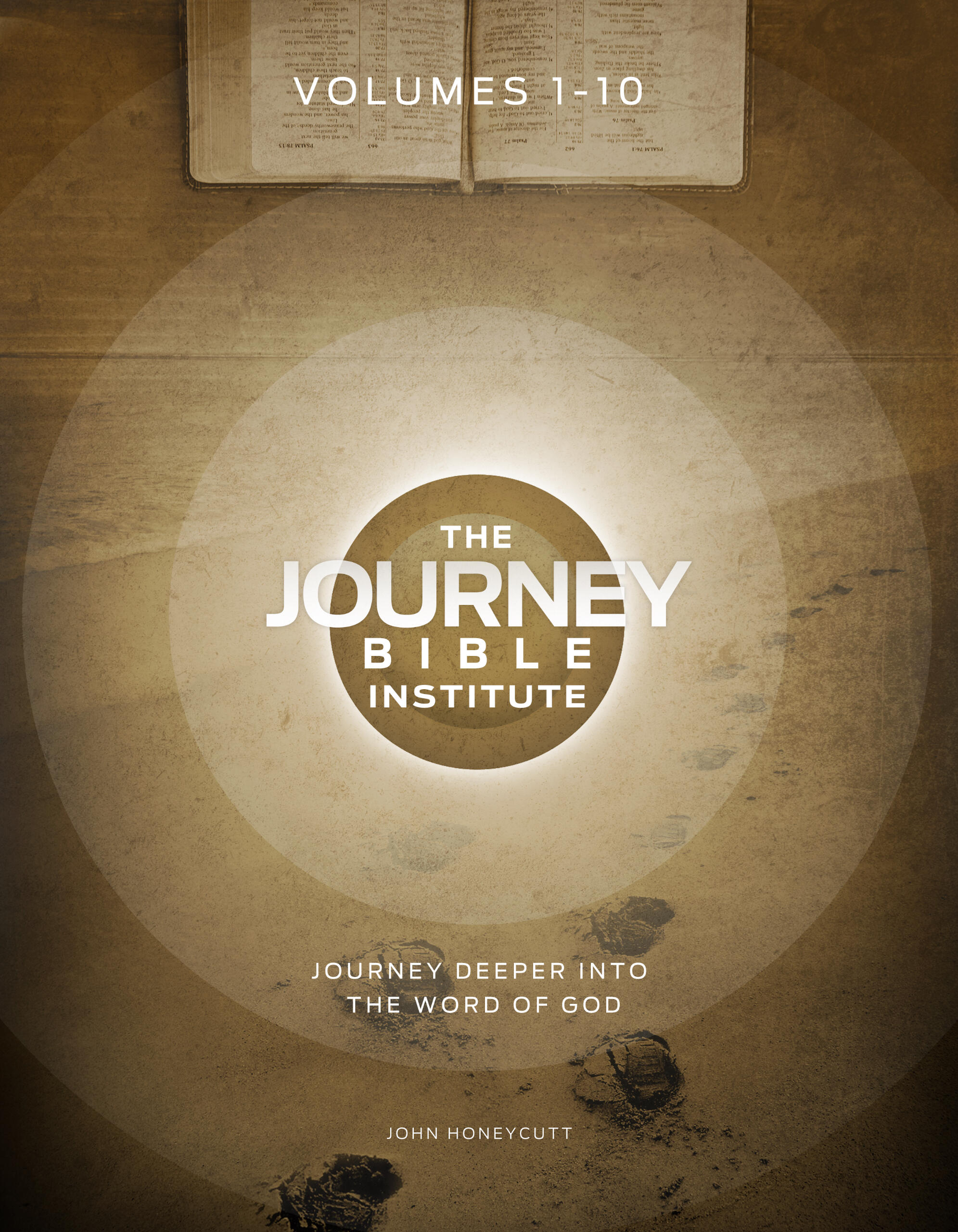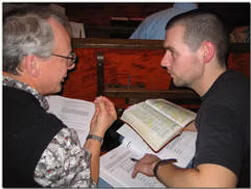This website is part of the JourneyTraining.com Discipleship Resources.On this website you'll see the free resources available for you, whether you are a disciple, discipler, pastor or leader.
Every page of every lesson has help for you.
How-to Subjects

The discipleship resources below are essential for pastors, leaders, disciples, and disciplers.
These special subjects are designed to equip you for success in discipleship.
How to Disciple with Journey
Congratulations in starting Journey
1. Register
On this website you'll need to register and see the free resources available for you. Every page of every lesson has help for you.2. Look in Journey
Next, look at the Table of Contents page to see the subjects we will study. Then look at the last few pages of Journey, at the Steps of Discipleship and the Destinations of our Journey. Seeing these characteristics come true in our lives is the purpose for Journey.3. Procedures
Journey gets its best results by meeting one on one. Men meet with men. Women with women. And the church leadership decides who meets with whom. Close family members and best friends should only meet together with their Pastor’s approval.Meet together at least once every week and if there are times you can’t, schedule “catch-up” meetings. If you meet every day, study the lessons in Journey only every 2 or 3 days for the teaching to be absorbed more; use the other days to learn from the Daily in the Word assignments (discussed in Lesson 2.) Never have long periods of time where you don’t meet together. Many use the internet or telephone to stay connected when they have to be apart.It’s very important to keep your conversations confidential unless something is life threatening or very serious. It’s also important that the disciple only work on the lessons with their Discipler and not in advance.The disciple can read the Bible verses that will be studied in advance but should not write answers in the blanks ahead of a meeting. Disciplers should not add their own materials or topics. If you’re a disciple, ask questions at any time.The Discipler may need to prepare an answer for your question or tell you that the answer is coming in a future lesson. Journey is designed for you to grow in God’s Word together.4. Lesson One
Understand that Lesson One is designed to lead people to Christ or to teach a disciple a complete study on Salvation. You can begin Journey with a believer or non-believer.5. A Typical Discipleship Meeting
When meeting together, first take time to talk to each other. There are times you will not even open the lessons but always encourage one another with the Word of God. Then you normally exchange your Daily in the Word and other assignments to see how each of you is doing (you’ll see these assignments in each lesson.) The Discipler reviews and signs that they were completed.Then the Discipler prays before starting the lesson. Review what you have learned before starting new subjects. The Discipler reads any introductions and summaries and the disciple reads the Bible verses. Sometimes the Discipler will read verses they want to emphasize. The Discipler reads the comments and gives the answers for the blanks and the disciple writes the answers in their lesson.The Discipler prepares for the lesson by knowing the context of the Bible verses and the meaning of key words in the verses you will study. You will see an “icon” on the left side of many pages. This indicates that there are some additional thoughts we want the Discipler to know about in that section.You can find the information on the web site. There are guiding instructions built into the lessons. As you come to them, just follow the instructions. Start at the beginning and do not skip any section, page, or assignment.At the end of each section, do what’s asked in the Reflect and Transfer. The Reflect and Transfer is designed to review and internalize the important teachings. Answer each question. Do all the assignments and activities assigned at the end of each lesson.The Discipler reviews what you have learned when it is time to end. Then schedule your next meeting and record your meeting in your records (see your church leaders for their record keeping method.) Close the meeting with prayer. If you need more training, visit the web site; new items are added regularly.Thank you.Congratulations again and may God multiply disciple makers through you.
John and Cathy Honeycutt


How to Subjects for Pastors and Leaders / Disciples and Disciplers
Below are various special subjects (How To) for Pastors and Leaders, as well as for Disciples and Disciplers.
Click the button below to view each menu.
How-to Subjects: FOR DISCIPLES AND DISCIPLERS
6
Successful
Discipleship
The subjects included in this section for Disciples and Disciplers are:
TO MULTIPLY DISCIPLE MAKERS...
These are components needed for success:1. Leadership
2. Vision3. Start right
4. Life to life5. Effective lessons
6. Officially in your church schedule7. Disciples quitting
8. Stronger outreach9. Plan for multiplication
10. Helping other churchesWant to discuss these? Email us for a phone appointment or an online meeting.

6
Successful
Discipleship
The subjects included in this section for Disciples and Disciplers are:
ABOUT US
Rev. John Honeycutt is the author of Journey discipleship lessons used in over 40 countries. They were designed for his Church-Planting ministry through World in Need International.John Honeycutt’s grandparents and parents were church planters, pastors and missionaries. John, with his wife Cathy, have been church planters since 1977 and have 3 adult children.World in Need International began in 1972 with the vision of missionary partners John Honeycutt Jr. and Bob Hughes and their desire to make a difference. Since that time, several ministry and projects are active on each continent.World in Need International, Inc. is an American non-denominational, non-profit ministry recognized by the IRS as a 501C(3) tax-exempt organization. U.S. Federal Tax ID #59-3048894.Contact Information:Text a Question to 1-800-210-9682World in Need International, 1420 Celebration Blvd Suite 200, Celebration, FL 34747 USAWorld in Need International starts and mobilizes local churches to multiply soul winning disciple makers.Our goal: 1 million disciples.

6
Successful
Discipleship
The subjects included in this section for Disciples and Disciplers are:
VACATIONS AND HOLIDAYS
One thing that can really slow down the multiplication of disciples is taking too much time off during summer breaks, holidays and vacation time. I would say that it is never good to go more than 30 days without meeting with your disciple. In other words, never take a whole summer off from meeting with your disciple or discipler.One thing you can do after Christmas holidays or vacations is have a catch-up meeting with your disciple or discipler. You can take a whole Saturday morning, or an entire Saturday afternoon and meet to catch up and keep progressing in spiritual growth. Or even meet a couple days or nights in a row during one week to bring everything back to theright schedule.But the most important thing is to have a constant relationship going, to have a caring connection with the disciple and discipler. Things are always happening in their life, especially for a new, young believer or disciple.So be careful not to lose momentum because of holidays, vacations and breaks that might take place.

6
Successful
Discipleship
The subjects included in this section for Disciples and Disciplers are:
HOW DID JESUS MAKE DISCIPLE MAKERS?
7 PrinciplesPrinciple #1 It was His FocusMatthew 4:19 And he saith unto them, Follow me, and I will make you fishers of men.Luke 19:10 For the Son of man is come to seek and to save that which was lost.What is your focus … of your life … your ministry?Principle #2 His Purpose was world wide EvangelismJohn 8:12 Then spake Jesus again unto them, saying, I am the light of the world: he that followeth me shall not walk in darkness, but shall have the light of life.John 8:24 I said therefore unto you, that ye shall die in your sins: for if ye believe not that I am he, ye shall die in your sins.John 14:6 Jesus saith unto him, I am the way, the truth, and the life: no man cometh unto the Father, but by me.If your focus is on discipleshi as was Jesus, then the result will be many, many more coming to Christ for salvation.Principle #3 He Cared for His disciples PersonallyMark 3:14 And he ordained twelve, that they should be with him, and that he might send them forth to preach,John 13:1 Now before the feast of the passover, when Jesus knew that his hour was come that he should depart out of this world unto the Father, having loved his own which were in the world, he loved them unto the end.Jesus had a one-on-one disciple among the twelve who was called “the disciple whom Jesus loved.” This is an example for us to follow and actually was commanded.How many of your church members know the Word of God well enough that you would trust them to teach the Word of God to a new believer one-on-one?Principle #4 Jesus tested His DisciplesLuke 14:26-27 If any man come to me, and hate not his father, and mother, and wife, and children, and brethren, and sisters, yea, and his own life also, he cannot be my disciple. And whosoever doth not bear his cross, and come after me, cannot be my disciple.Luke 14:33 So likewise, whosoever he be of you that forsaketh not all that he hath, he cannot be my disciple.Journey tests the disciple by meeting together to learn the lessons and by measuring the time in the Word of God with the Daily in the Word assignments.Even though there is a sincere caring for your disciple, they must be tested and some do not pass the test at that certain point in time in their lives.If everyone is “getting through” your discipleship process, something is wrong.Principle #5 Spiritual GrowthIn Acts 6:1 the number of the “disciples was multiplied.”In Acts 6:7 we see that it’s really all about the Word of God being built into the “believers” and the result is they become a disciple and disciples multiply. The disciples were so well trained that they were even able to see Jewish priest come to Christ.Acts 8:4 Therefore they that were scattered abroad went every where preaching the word.The proof of their maturity is seen in multiplying themselves. Children cannot give birth to children. They must mature.Are you seeing spiritual multiplication take place through your church members?Principle #6 Jesus challenged His Disciple to have Greater AccomplishmentsNotice what Jesus says in John 14:12: Verily, verily, I say unto you, He that believeth on me, the works that I do shall he do also; and greater works than these shall he do; because I go unto my Father.John 15:15-16
Henceforth I call you not servants; for the servant knoweth not what his lord doeth: but I have called you friends; for all things that I have heard of my Father I have made known unto you. [16] Ye have not chosen me, but I have chosen you, and ordained you, that ye should go and bring forth fruit, and that your fruit should remain: that whatsoever ye shall ask of the Father in my name, he may give it you.Jesus came to see every person know about salvation through Him in every generation until He returns. This was His plan.How many are we helping to do great things for God?Principle #7 Jesus Launched His Disciples to MultiplyNotice Jesus in Matthew 28:18-20:
And Jesus came and spake unto them, saying, All power is given unto me in heaven and in earth.
Go ye therefore, and teach all nations, baptizing them in the name of the Father, and of the Son, and of the Holy Ghost:
Teaching them to observe all things whatsoever I have commanded you: and, lo, I am with you alway, even unto the end of the world. Amen.There was a definite point in time to launch his disciples; a sending. Jesus said as the Father has sent me so send I you.Are you graduating and approving adults to disciple and care for new believers? That’s what Jesus did. When was the last time you launched disciplers, disciples, pastors, missionaries?Here is the key to these principles; not one of these principles may be missing to see New Testament results.Between 33 AD, the Resurrection and 64 AD, 31 years, the whole world heard the Gospel.Will we follow Christ or will we follow our own plans, strategies and devices?

6
Successful
Discipleship
The subjects included in this section for Disciples and Disciplers are:
WHAT A FEW CAN DO
What a Few Dedicated Faithful Disciplers can do:Journey normally takes 30 meetings/weeks to complete.But let’s say it takes you 75 weeks to make one faithful disciple and each Discipler will share the Gospel with one person per week…starting with one Discipler (you)…
Starting with 1 discipler...
| Year | With just 1 Discipler | Total adults in discipleship | Hearing the Gospel in 18 months | Total hearing the Gospel |
|---|---|---|---|---|
| 1 | 1 disciple | 2 | 78 | 78 |
| 5 | 8 | 16 | 624 | 1,170 |
| 11 | 128 | 256 | 9,984 | 19,890 |
| 14 | 512 | 1,024 | 39,936 | 79,794 |
Starting with 2 disciplers...
| Year | With just 2 Disciplers | Total adults in discipleship | Hearing the Gospel in 18 months | Total hearing the Gospel |
|---|---|---|---|---|
| 1 | 2 disciples | 4 | 156 | 156 |
| 5 | 16 | 32 | 1,248 | 2,340 |
| 11 | 256 | 512 | 19,968 | 39,780 |
| 14 | 1,024 | 2,048 | 79,872 | 159,588 |
Starting with 4 disciplers...
| Year | With just 4 Disciplers | Total adults in discipleship | Hearing the Gospel in 18 months | Total hearing the Gospel |
|---|---|---|---|---|
| 1 | 4 disciples | 8 | 312 | 312 |
| 5 | 32 | 64 | 2,496 | 4,680 |
| 11 | 512 | 1,024 | 39,936 | 79,560 |
| 14 | 2,048 | 4,096 | 159,744 | 319,176 |
Starting with 10 disciplers...
| Year | With just 10 Disciplers | Total adults in discipleship | Hearing the Gospel in 18 months | Total hearing the Gospel |
|---|---|---|---|---|
| 1 | 10 disciples | 20 | 780 | 780 |
| 5 | 80 | 160 | 6,240 | 11,700 |
| 11 | 1,280 | 2,560 | 99,840 | 198,900 |
| 14 | 5,120 | 10,240 | 399,360 | 797,940 |
Starting with 20 disciplers...
| Year | With just 20 Disciplers | Total adults in discipleship | Hearing the Gospel in 18 months | Total hearing the Gospel |
|---|---|---|---|---|
| 1 | 20 disciples | 40 | 1,560 | 1,560 |
| 5 | 160 | 320 | 12,480 | 23,400 |
| 11 | 2,560 | 5,120 | 199,680 | 397,800 |
| 14 | 10,240 | 20,480 | 798,720 | 1,595,880 |
Starting with 40 disciplers...
| Year | With just 40 Discipler | Total adults in discipleship | Hearing the Gospel in 18 months | Total hearing the Gospel |
|---|---|---|---|---|
| 1 | 40 disciple | 80 | 3,120 | 3,120 |
| 5 | 320 | 640 | 24,960 | 46,800 |
| 11 | 5,120 | 10,240 | 399,360 | 795,600 |
| 14 | 20,480 | 40,960 | 1,597,440 | 3,191,760 |

6
Successful
Discipleship
The subjects included in this section for Disciples and Disciplers are:
BRINGING GLORY TO GOD
There are four specific verses in the Bible that explain what brings glory to God.First of all we have to acknowledge that we are instructed to bring Glory to God from 1st Corinthians 6:20 because there was such a high price paid for our salvation that God asks to us to bring glory to Him in our body and spirit because they belong to Him. We have a debt of sin to pay.We are also told in 1st Corinthians 10:31 Whatever we do, whatever we drink, whatever we eat we are to do all to the glory of God. So our lives should bring glory to God.Of the four verses that tell us specifically what brings glory to God, one of them is the key to the others. But the first one to notice is in Mathew 5:16 where we are told to let our light to shine before men that they will see our good works, and then they will glorify our Father which is in heaven. That’s being a witness, obviously.The second verse that is used for that is when a man is ill, Lazarus dies. The Lord told his disciples in John 11:1-14 that the sickness was unto death but for the glory of God. So there are sometimes key events in our lives that require faith and those events bring glory to God because all things work together for good to those that love God.We are also told in 1st Peter 4:14 that when there is a trial and when there is persecution that we can understand that God is glorified in that and we would see that our trials bring glory to God.The last verse to mention of the four, is in John 15:8 where the Bible says Herein is my Father glorified that you bear much fruit so shall ye be my disciples. It’s just one of the four that specifically tells us how to bring glory to God, and yet I think is the key. Because then we understand that the trials in our life and the persecution in the key events and even to let our light shine brings glory to God its because it’s all for bearing fruit of being His disciple. And to bear fruit is to multiply disciples.So the question is, is your life bringing glory to God?

6
Successful
Discipleship
The subjects included in this section for Disciples and Disciplers are:
CHARACTERISTICS OF A SPIRITUAL DISCIPLER
1. Spiritual Maturity - This does not mean the discipler is perfect, but that the discipler is further down the Christian life than the disciple. Also, spiritual maturity can not just be measured by time alone; there are many that have been believers for 10 years yet have never grown. A spiritually mature discipler has learned through both mistakes and successes, knows God, has experience in the Christian life and is walking in the Spirit.2. Transparency – Disciplers must be open and honest. The spiritual discipler will share their past and present; their strengths, fears and joys. There is no place for hypocrisy or pretense in discipleship. The spiritual discipler knows that in a discipleship relationship there are two teachers and two learners at the same time.3. Example – A spiritual discipler will guide by example first and instruction second-they live what they teach. Acts 1:1 says that the Gospel according to Luke was the beginning of all that Jesus would do and teach. The order of those two words is very important. The spiritual discipler will move their disciple into a living relationship with Christ because he or she will not always be around. The disciple needs a continuous relationship with Christ who dwells within; not a list of what a spiritual believer is. The spiritual discipler shows this by their life.4. Unconditional love – A spiritual discipler will love their disciple because they are aware of the potential in the disciple. They know the great possibilities Christ has for their disciple and will do everything possible to help them grow.5. Patience – Spiritual disciplers never try to rush the growth process, and they know that each disciple has individual needs and pace. The spiritual discipler knows that God has His own plans and purpose for His disciple.6. Availability – A spiritual discipler must always be available, especially when the disciple is in trouble. The discipler knows when it is important to stay close to their disciple; which is also the reason a discipler should not have too many disciples at the same time.7. Submission – A spiritual discipler knows that we always need accountability and leadership. They know there are blind spots, undeveloped areas and possible deceptions from our Enemy. Therefore, a spiritual discipler operates in unison with their local church.8. Perspective – As their disciple shares the experiences of daily life, the discipler can often put these events into proper perspective. A spiritual discipler must properly interpret what is going on and why.9. Forgiveness – A spiritual discipler helps his disciple seek God’s forgiveness and the forgivness of others who have been offended by the disciple directly.10. Recognizing Danger – A spiritual discipler has learned the signs of approaching trouble and can help their disciple recognize what they may not see by themselves. For example, the disciple may be keeping the wrong company, neglecting their spouse or children, not properly discipling their children, living above their income and possibly more, and it is the disciplers job to illuminate and edify.11. Encouragement – We all need consistent encouragement if we are to grow. Spiritual disciplers know how important encouragement is to their own life.12. Instructors – A disciple needs ongoing instruction and accountability in the basic disciplines of the Christian life – how to know the Bible, how to pray effectively, how to know God, how to forgive, how to overcome sin etc. A spiritual discipler will add knowledge and assist in putting the knowledge into practice.13. Facilitator – A spiritual discipler will not need to have a specific answer for everything, yet they can help their disciple find their own answers from the Lord.14. Provides fellowship – A spiritual discipler will be a true companion in Christ. The discipler and disciple will not just be an assigned to one another but to a relationship centered on Christ. You will never have enough full-time workers to reach your town, city, province or country. Only as every member becomes a minister can nations be reached.

6
Successful
Discipleship
The subjects included in this section for Disciples and Disciplers are:
A NEW COMMANDMENT
The New Commandment from JesusJesus told us that the First Commandment is to love God, but did you know He also gave us a new commandment in John 13:34–35?“A new commandment I give unto you, That ye love one another; as I have loved you, that ye also love one another. By this shall all men know that ye are my disciples, if ye have love one to another.”The Example of ChristEverything about the life of Jesus is an example and pattern for every one of us to follow.
His life instructs us today whether we are an individual believer, a disciple, a discipler, or a leader.He said, “Love one another as I have loved you.”
How did He love His disciples? What was His example?The Bible says Jesus loved His disciples unto the end.
He spent most of His time training disciples. Remember that the Bible says He had a company of disciples from which He chose twelve to be with Him constantly. Among the twelve, He made some of them leaders.The Pattern for Every BelieverNow, not all of us are called by God to lead and train a large group of people, and not all of us are called to train and direct leaders.But there is an example that Jesus gave that every one of us can follow: we all can have a one-on-one disciple, just as Jesus did.John, “the disciple whom Jesus loved” (as the Bible calls him), is the one Jesus personally discipled.It’s up to God whether He calls you to lead the way or where He places you in serving Him.
But all of us are called to have at least one disciple whom we love, care for, and mature to do the same with someone else.A Commandment to Be ObeyedJesus said the First Commandment is to love God.
The New Commandment Jesus gave is to follow His example and be a disciple-maker.I’m sure we would agree that any Commandment in the Bible from God is to be taken seriously.
This New Commandment is no different than:“Thou shalt not take the name of God in vain,”
“Thou shalt not commit adultery,” or
“Thou shalt not kill.”It’s a commandment.A Desire from the HeartBut it should be a desire and not just a commandment. If you really care about serving God and care about your disciple, you will take time for your disciple and help them spiritually.It all boils down to obeying Christ’s command to us.And if we always have one-on-one disciples, our lives will make a lasting impact for Him.

5
Background of
Journey
The subjects included in this section for Disciples and Disciplers are:
STRUCTURE OF JOURNEY
If you were going to choose which subjects a new Believer should learn to not only be grounded in the Word of God but to grow and be trusted to multiply, what subjects and topics would you choose? There are hundreds to choose from.Journey has 10 lessons inspired by the 10 Commandments:
| Journey Lesson | 10 Commandments in Exodus 20 | Concept |
|---|---|---|
| 1. Salvation | Thou shalt have no other gods before me. | My life is to bring glory to God and His Will. |
| 2. Assurance | Thou shalt not make unto thee any graven image… | The Bible is the preserved Word of God and the final authority in my life. |
| 3. Prayer | Thou shalt not take the name of the Lord thy God in vain… | I want to grow closer to my Heavenly Father every day. |
| 4. Church | Remember the sabbath day, to keep it holy. | My church must believe in and only teach the Word of God. |
| 5. Discipleship | Honor thy father and thy mother… | I will spiritually multiply disciples to fulfill Christ’s Great Commission. |
| 6. The Future | Thou shalt not kill. | We are in spiritual warfare for the souls of every man, woman and child. |
| 7. Spiritual Formation | Thou shalt not commit adultery. | I must mature spiritually to live a holy life according to God’s Word. |
| 8. Faith | Thou shalt not steal. | I believe that all things are possible with God. |
| 9. Words | Thou shalt not bear false witness against thy neighbor. | My words must be in agreement with the Word of God. |
| 10. Loving God | Thou shalt not covet… | I will love God with all my heart, mind, soul and strength. |

5
Background of
Journey
The subjects included in this section for Disciples and Disciplers are:
HOW JOURNEY WAS DEVELOPED
Rev. John Honeycutt is the author of Journey discipleship lessons used in over 45 countries and 25 languages.John Honeycutt's grand parents and parents were church planters, pastors and missionaries. John, with his wife Cathy, have been church planters since 1977 and have 3 adult children.They were designed because the lack of good discipleship materials for church planting.Many discipleship materials are good at “grounding” new believers but fail to multiply them.Journey is not just a new set of lessons done in a different way with a better look. The result is much bigger than that...it’s the strategy that Journey enables.Journey has this purpose: leading people to Christ and discipling them to lead others to Christ and betrusted by their Pastor to do the same.

5
Background of
Journey
The subjects included in this section for Disciples and Disciplers are:
JOURNEY'S FOUNDATION
During church-planting, we have tried many kinds of lessons. We have tried other discipleship systems and the results were always that we had to re-write them, add to them, subtract from them.I was impressed by Francis Shaeffers' little booklet he used for soul winning, Basic Bible Study, and a message I had heard on the Ten Commandments. If it helps Church planting, it will help any church.

5
Background of
Journey
The subjects included in this section for Disciples and Disciplers are:
MATH AND ACTS
The word "disciple" is found 364 times in the Bible. One time in the Old Testament. The rest of the time it's in the New testament, but only up to Acts chapter 21. The word “disciple” actually comes from the word for mathematics as well.The Bible doesn't use that word randomly. If it calls somebody a disciple, it means they had been discipled.Every time we see the word, disciple it means that discipleship has taken place for that person to become a disciple. The Bible makes a very clear difference between people who become believers, and those believers who become discipled.in Acts 21 verse 16, that's the last time it's used in the Bible. From then on, it refers to saved people in the church as the saints because you don't know whose disciples and who's not, that word “disciple” is very carefully used.Now notice in Acts 2:41 that about 3,000 souls accepted Christ after a message from Peter.See in Acts 2:47 that people were being saved daily.In Acts 5:14 we see that “believers” were the more added and in fact multitudes were added.And in Acts 5:42 these new “believers” were not being kept busy in the new church but they were being taught the Word of God…in every house.Now here is the result of caring for and teaching new “believers” which is seen in Acts 6:1; the number of the “disciples was multiplied”.You’ll never find “believers” multiplying in the Bible. And if the Bible uses the word “disciple” it means that discipleship has taken place and the result is always multiplication.In Acts 6:7 we see that it’s really all about the Word of God being built into the “believers” and the result is they become a disciple and disciples multiply. The disciples were so well trained that they were even able to see Jewish priest come to Christ. How would your church members witness to a Jewish person let alone a rabbi?In verse seven, the multiplication is described as a much higher or greater multiplication.Acts 9:31 gives the nature result of disciples multiplying and that is the multiplication of local churches that preach, teach, and disciple with the Word of God.

5
Background of
Journey
The subjects included in this section for Disciples and Disciplers are:
THE JOURNEY BIBLE INSTITUTE
The Journey Bible Institute adopts a strategy of winning an individual to Christ, seeing them discipled to the point of becoming a Disciple Maker, then they feel a desire to learn and do more with a possible “Call” to full time ministry.The Strategy Overview for the Journey Bible Institute is:1. Discipleship training - one on one
2. Bible Institute - group training
3. Spiritual Leadership - smaller group training
4. Launch New Leaders - one on one
We believe the individual must acquire certain “skills” in order to thrive in full-time ministry. In our experience, those skills are…Having the ability to Disciple a new Believer to the point of multiplication.Knowing how to conduct Outreach, Visitation and Follow-up.Knowing how to start, teach and lead group Bible Studies and Disciplers.Knowing how to plan, organize, recruit, nurture and grow a group and Disciplers.Knowing how to lead, conduct and nurture through Worship Services.The Certificates and Degrees we confer are:Certificate in Discipleship
Degree in Biblical Ministry
Degree in Ministry Leadership
Degree in Spiritual LeadershipFor a Certificate in DiscipleshipThe 118 Subjects below are learned in Journey Lessons for this certificate* This Ministry Skill is learned: Having the ability to Disciple a new Believer.

5
Background of
Journey
The subjects included in this section for Disciples and Disciplers are:
THE POWER OF MULTIPLICATION
God is interested in multiplication. He is not interested in addition, He is definitely not interested in subtraction accept where needed. But He is interested in multiplication.The first man and woman, the first instruction that they were given was that they were to reproduce and multiply. After the earth is destroyed in a flood and the with surviving human beings get off of the ark their firs instruction is to multiply.When Jesus is upon the earth, everything He did, was to make sure that you and I would get the Gospel almost 2000 years later, and the way that would be done is through multiplication.Even in the Old Testament when the Jews were taken captive by an enemy and they asked God “What do we do now?” He said to not diminish to continue to grow and multiply so that they would not be overtaken.The power of multiplication in the local church in reaching people with the Gospel and developing leaders and enlarging the inner core of faithful members in the church can only be done by multiplying them.That can not be done in a group setting or just from all the ministries that we have seen churches use. It can be done from a one on one discipleship ministry. When you utilize the Journey discipleship materials you are putting into place the power of multiplication.

5
Background of
Journey
The subjects included in this section for Disciples and Disciplers are:
WHY MINISTERING IS NOT SERVING
Probably the number one strategy that churches and pastors employ is getting people as involved as possible in the church, as quickly as possible.Of course, there is a need in the church for people to serve to be able to function effectively and efficiently. However, as a strategy for the people, it is a failed strategy. In fact every religion has people that serve in it. They are not believers and yet they are actively serving.And once again, there is a great need to develop the concept of community among the believers in the church. But as a strategy for church growth or to grow the believers, this strategy fails every time. The reason is, it’s the exact opposite of what we as leaders and preachers, teachers, missionaries, church planters what we are called to do. We are called in Ephesians 4:11-12 to perfect the saints for the work of the ministry.Now ministry is not serving. Serving is not the same as ministry. If you study this, and you look up the verses in your Bible and you will find every time ministry is described it always contains these elements: It contains someone who has the Word of God and is transferring it in some way to someone else. But that is not the same as ministering, when someone has the Word of God and they are transferring it to someone else, they are serving but they are serving by ministering.So, if we will do what the Word of God says we will see disciples multiply because we don’t just get them busy in the Church, we get them effectively working with the Word of God with someone else and that produces solid church growth.This is not a new plan, it is the original plan.

5
Background of
Journey
The subjects included in this section for Disciples and Disciplers are:
LEARN ABOUT STUDENT JOURNEY
Student Journey contains 2 sections with 13 lessons each.They can be used for 2 quarters.The goal is for students to disciple each other, one on one, peer to peer.The first section of Student Journey covers these subjects:God
Bible
Sure
Pray
Sin
Holy
Church
Baptism
Giving
Future
Devotion
Truth
WitnessThe second section is an effective study of Ephesians 4-6. These lessons are highly effective and spiritually grow young people closer to God and His Word.There are Resources online for each lesson.The same book is for the discipler or disciple. Each book has blanks and the Church Leadership gives the answer sheet to their Disciplers.Every page has additional resources on the website and has at least one QR Code (Quick Response Code) so the students can see an introduction, or a summary or additional thoughts from their smart phones while using the lessons.

4
Multiplying Disciple Makers
The subjects included in this section for Disciples and Disciplers are:
REPRODUCING
Discipleship means reproduction.Discipleship was the way of the early church.Whenever the word 'disciple' is found in the Bible it indicates that discipleship has occurred.Journey was developed through planting churches. When you plant a church, you automatically win people to Christ and disciple them. But the key is to disciple to the point of multiplication. Most discipleship systems fail in measurable reproduction.The One on One Discipleship materials are actually a curriculum, rather than just lessons, to produce soul winning disciple makers.

4
Multiplying Disciple Makers
The subjects included in this section for Disciples and Disciplers are:
THE DESTINATIONS FOR A MATURE DISCIPLE
Navigating the journey of life to the right destinations is essential for our growth and maturity. We cannot be what God intended us to be by arriving at only a few of the destinations. We must remember that it takes all of them in order to live complete in Christ.Below are the destinations we want to help you reach. These are the goals of our journey together. Your discipler will guide you through the steps of discipleship to help you. Take a moment and review each point carefully.The Destinations of our Journey1. We know Christ as Lord and Saviour. John 8:30
2. We have an assurance of our salvation. John 20:31
3. We have a thirst for God’s Word and grow spiritually. John 8:31
4. We communicate with God and know Him personally. Luke 11:1
5. We have been baptized according to scripture and exhibit personal stewardship in a local church. Eph 4:11-12
6. We can transfer Biblical truths of Christianity in everyday life. John 13:33-34
7. We have come to a point of forsaking all to follow Christ. Luke 14:33
8. We model lifestyle behavior consistent with Scriptural teaching. Romans 12:1-2
9. We are actively drawing non-believers to Christ. John 15:8
10. We are effectively reproducing disciple makers one on one. John 15:16

4
Multiplying Disciple Makers
The subjects included in this section for Disciples and Disciplers are:
REPRODUCIBILITY
Reproducibility is a word normally used in the science field. It means that an experiment produces the same results no matter who performs the experiment or what the conditions are.Journey is reproducible and designed for multiplication. Everything in the way Journey is used has this principle in it.When a disciple completes Journey, they then take a new disciple through Journey.Compare Journey to a New Converts class. New Converts Classes are not reproducible. The new convert cannot teach new converts when the classes are finished.

4
Multiplying Disciple Makers
The subjects included in this section for Disciples and Disciplers are:
TESTIMONIES
"Journey unified our church to reach the Lost." - Pastor, OH"Without exception, everyone who has come through Journey has seen spiritual maturity take place and the need for counseling in the church has dropped dramatically." - Pastor, CA"It takes a new believer who is alone and vulnerable and moves that person to a place of dependence on Christ, dependence on His Word." - Pastor, NC
"In the first six months we saw twice as many people received Christ than all of last year." - Pastor, New England"We use the first lesson for soul winning and it’s a powerful tool. Then I can't explain what it's done for our people to see their new converts become integrated into the church and become an active participant of the church. It’s an amazing process of what God does through this ministry." - Pastor, OH"We've seen so many people lives changed, so many people come to Christ and and become soul winning disciple makers themselves." - Pastor, WAIt takes a new believer who is alone and vulnerable and moves that person to a place of dependence on Christ, dependence on His Word.— Pastor, NC“Simply the best resources we have ever seen.” - Pastor from Ohio.Journey unified our church to reach the Lost." - Pastor, OH

4
Multiplying Disciple Makers
The subjects included in this section for Disciples and Disciplers are:
USING THE CHRISTIANITY WITNESSING TOOL
The Christianity Tool is a summary of Lesson One used when meeting with a person that you want to make a complete presentation of the Gospel to. This is great for family members you see all the time and you can say to them “Would you like to sit down and see for yourself, from the Bible, what it says about salvation?” Then it would take about four meetings to go through the Tool with them, but you can be assured that they have had a complete presentation of the Gospel.This witnessing tool is a smaller booklet that has some illustrations in it and it’s available on the TheJourneyForum.com website. It’s also great for people you work with or anyone that you interact with consistently and you want to know if they are receptive and that they have had a very complete presentation of the Gospel.

4
Multiplying Disciple Makers
The subjects included in this section for Disciples and Disciplers are:
GOING FURTHER IN THE DAILY IN THE WORD
Doing The Daily in the Word is all about reading, saying, and writing God’s Word in your Daily in the Word Notebook.It’s simple and yet profound how this simple form of Bible study and meditation on His Word affects our lives.The suggested order of writing is Mark - 1st John - John - Romans to Titus - Proverbs - Genesis - Psalms - rest of the Bible.To take your Daily in the Word further:1. As you are doing your Daily in the Word, underline the words that stand out and add those verses to the Bible Study Notebook or the Memory Cards. Then study those words and verses deeper by finding other verses that are similar. You can use a concordance or many online tools like www.blueletterbible.org (very good at the time of this writing) for study tools.2. Set aside some days for only deeper study in your Bible Study Notebook.3. You can pray from entries made in your Prayer Notebook using what God has shown you in His Word.4. Sometimes just reading large amounts of Scripture at one time.5. Do Bible studies of paragraphs in chapters or even entire books.6. Be in fellowship and communion with the Triune God through meditation, prayer and fasting.

3
Discipleship
Reminders
The subjects included in this section for Disciples and Disciplers are:
FOUR THINGS TO REMEMBER ABOUT YOU AND YOUR DISCIPLE
1. Keep your conversations confidential, unless something is life threatening or very serious.2. Meet together at least once every week; if there are times you can’t, schedule “catch-up” meetings.3. Never have long periods of time where you don’t meet together.4. Do not assign the disciple to work on the lessons in advance.

3
Discipleship
Reminders
The subjects included in this section for Disciples and Disciplers are:
DISCIPLES, MAKE SURE YOU...
Don’t work on the lesson ahead. You can read the Bible verse ahead.Don’t skip your Daily in the Word; do it every day.Memorize the Bible verses.Do all assignments; answer the questions when assigned, etc.Be faithful to attend church on time.

3
Discipleship
Reminders
The subjects included in this section for Disciples and Disciplers are:
MISTAKES DISCIPLERS HAVE MADE
Don’t have periods of time where you never meet together - meet together every week and twice a week if you can.Don’t talk about your disciple or discipler to others; keep your conversations confidential unless something is life threatening or very serious - have a close relationship built on trust.Disciples should not work on the lessons on their own - it's important that the disciple only work on the lessons with their Discipler and not in advance.Don’t add your own subjects to the lessons - each topic and section has been carefully designed.Don’t skip sections or assignments - when you discover the teachings from God’s Word for yourself, it goes “deeper.”Don’t give your disciple to another Discipler - a stable relationship produces better results.Don’t think the Daily in the Word is optional; after doing everything you can, if your disciple will not take time for God’s Word consistently, you have to get a new disciple. You cannot reproduce bad disciples. You may discover they fade away on their own anyway.

3
Discipleship
Reminders
The subjects included in this section for Disciples and Disciplers are:
HERE ARE SOME HINDRANCES TO
DISCIPLES MULTIPLYING
Not keeping them as a priority.Disciplers not properly trained.Lack of accountability.Not teaching the Word God.Journey makes a powerful impact when multiplication is the personality of the church and not a program.

3
Discipleship
Reminders
The subjects included in this section for Disciples and Disciplers are:
LEARNING STYLES
Understand the Main Learning Styles to better DiscipleIntroductionEvery person learns uniquely. Some remember best by hearing, others by seeing, doing, feeling, or reflecting.
Understanding these learning styles helps both disciplers and disciples make the most of their study time and experiences.Learning styles describe how people take in, process, and retain information.
When you know how you learn best, you can choose study methods that fit you —
And when teaching others, you can adapt your approach to meet their needs.This guide explains five primary learning styles:
Auditory, Visual, Kinesthetic, Social/Emotional, and Metacognitive —
each with its own advantages and challenges.The Auditory LearnerAdvantages:
• Learns best through listening, talking, and lectures.
• Often skilled at sequencing, organizing, and methodical work.
• May use lists or checklists to recall information.Disadvantages:
• Struggles to multitask; prefers one task at a time.
• May focus too much on details and miss the bigger picture.
• Often prefers working alone rather than in groups.Summary: Auditory learners understand best through listening and verbal repetition.The Visual LearnerAdvantages:
• Learns well through pictures, charts, and visual materials.
• Good at imagining events or visualizing ideas.
• Often creative and able to see the whole picture of a problem.Disadvantages:
• May take longer to complete tasks.
• Sometimes values appearance over substance.
• Can overlook small details while focusing on design or visuals.Summary: Visual learners learn best through seeing, reading, and using images or diagrams.The Kinesthetic LearnerAdvantages:
• Learns best by doing and experiencing.
• Strong at building, demonstrating, or performing practical tasks.
• Gains satisfaction and insight through direct activity.Disadvantages:
• May miss verbal instructions or find reading tasks difficult.
• Struggles to stay still or focus during long written assignments.
• Can overlook details when not physically engaged.Summary: Kinesthetic learners grasp ideas best through physical activity and hands-on experience.The Social/Emotional LearnerAdvantages:
• Enjoys teamwork, discussion, and collaboration.
• Encourages participation and motivates others.
• Values relationships and the well-being of others.Disadvantages:
• May depend too much on others for support.
• Can struggle to work independently or stay objective.
• Emotions may influence decisions or learning focus.Summary: Social/emotional learners excel when learning involves teamwork, discussion, and personal connection.The Metacognitive LearnerAdvantages:
• Reflective and thoughtful; seeks to understand how they learn.
• Excellent at problem-solving and connecting past lessons to new ones.
• Often trusted for sound advice and careful consideration.Disadvantages:
• May take longer to complete tasks.
• Can frustrate others by being overly detailed or cautious.Summary: Metacognitive learners grow best through reflection, analysis, and strategic thinking.

3
Discipleship
Reminders
The subjects included in this section for Disciples and Disciplers are:
WHAT ABOUT MEMORY VERSES
What About Memory Verses in Journey? The Journey discipleship lessons start to talk about memory verses in Lesson Three. Of course before that time in every “Reflect and Transfer” and sections of the lesson the disciple is encouraged to memorize any verses that really stand out to them. That is a natural way and a more spiritual way to connect with the verse and bring them into their heart because it’s something that the Holy Spirit is pointing out to them.In their Daily in the Word, the writings of the Word of God, they are encouraged that any verses that really jump off the page to commit to memory. That is another very natural way to memorize the scripture and to hide it into their heart.But in Lesson Three there are approximately 25 verses that they are asked to learn by the end of the Lessons, and that is not a lot of Bible verses but they are all verses that are related to sharing the Gospel. Those are the only ones that we check up on.There are some disciplers that are more strict about this and give more memory verses to their disciples. That is great, maybe their disciples are hungry for that but it is not something that is required in the lessons. It is something we know that the more a disciple gets into the Word of God, the more the Word of God they are going to want.We encourage a lot of memorization, but we like it to be done in a natural way. It is key that every disciple be ready to witness at any time.

2
Resources
for Journey
The subjects included in this section for Disciples and Disciplers are:
WHAT ARE THE REFLECT AND TRANSFER AND
WATER COOLER QUESTIONS
There are guiding instructions built into the lessons. As you come to them, just follow the instructions. Start at the beginning and do not skip any section, page, or assignment.At the end of each section, do what’s asked in the Reflect and Transfer. The Reflect and Transfer is designed to review and internalize the important teachings. Answer each question. Do all the assignments and activities assigned at the end of each lesson.Reflect and Transfer
Located at the end of a Section, the Reflect and Transfer first asks a series of important questions to a disciple. Glean a response for each one. Then the disciple is asked to explain a passage that was read in the Section. Next, the disciple is placed into a real life scenario where a question is asked to prepare the disciple for “water cooler” moments (everyday conversations we all have).The disciple will be an intuitive daily witness through the water cooler scenarios.So by a disciple going through Lesson One they are ready to witness. What is meant by Intuitively? is throughout the Journey lessons there are over 45 sections called ?The Water Cooler Scenarios? or Water Cooler Questions. These are the top 40 questions that people in America are asking every day. Training them to answer those questions is not to get them specifically to answer it but that they would use the questions to be able to share the Gospel with that person.For example, one of the first ones is ?How could a loving God let so many people die in a tsunami or a terrorist attack?" The suggested answer for that is to help to share the Gospel, not necessarily try to answer it. So when asked about evolution, or asked about why people die of cancer or anything else in the those top 40 questions, we help the disciple and discipler to know how to intuitively answer those questions and turn the answer to giving the Gospel.

2
Resources
for Journey
The subjects included in this section for Disciples and Disciplers are:
ONLINE RESOURCES FOR YOU
In the main Journey Training website, there are many resources for you including extra verses for each subject and each lesson. This is provided because sometimes a disciple might have more questions about the Trinity or the resurrection, or the second coming of Christ. This helps you with additional verses just in case you need some study for yourself as well as an interest that your disciple might have.Also on the website is additional training on how to use Journey and philosophy of discipleship.Everything is there to help you to become an excellent disciple-maker, who will multiply disciples that will, in turn, become disicple-makers in the future.You are also able to contact us with any questions and even to order additional materials as needed.Please let us know any questions you have or any additional resources you think would be helpful as we always want to improve what we are doing for this great ministry of multiplying disciples.

2
Resources
for Journey
The subjects included in this section for Disciples and Disciplers are:
WHAT IS THE SPIRITUAL MAP
The Spiritual Map - a Witnessing Tool for Journey UsersAlso known as the Gospel Chart.In English - Print as many as you want...this is a great witnessing tool used to start hundreds of churches.It's one page if you print on the front and back. It's a summary of Journey Lesson 1 and is a complete presentation of the Gospel with illustrations and a great look.
2
Resources
for Journey
The subjects included in this section for Disciples and Disciplers are:
HOW TO DO THE DAILY IN THE WORD
Reading, writing, saying God’s Word…Write the date, the book, chapter and verse that you are writing for that day at the top of the page in your Daily in the Word note book (Lesson One explains what to get ready). Write out the verse, and after any and all punctuation you go down to the next line. Divide a long verse that has no punctuation marks where you want to.Write at least 3 to 5 verses each day and be ready to show your discipler your Daily in the Word. The disciple and Disciplers both do their Daily in the Word each day (the Discipler may be writing in another place in the Bible).Additional plans to expand your Daily in the Word will be placed here and you will be notified when they are ready.
2
Resources
for Journey
The subjects included in this section for Disciples and Disciplers are:
2
Resources
for Journey
The subjects included in this section for Disciples and Disciplers are:
INVOLVEMENT POINTS
Involvement points have a special icon that you can find in the Table of Contents in the front of Journey. This symbol or icon that you find throughout the lessons gives you special insight into that area of the lesson.It may want you to know what we are shooting for in that part of the lesson. There can be many applications in the truth of Gods’ Word. You may think that the purpose is for one thing but we actually have another idea in mind, and the Involvement Point is to explain to you where we are going in that section of the lesson.For example in a Lesson on prayer, we are emphasizing for the disciple to know that drawing close to God is the key in prayer - not just learning how to pray or how to say the right words.There is always more information being developed in this area, so continue to check the website as this area grows.
2
Resources
for Journey
The subjects included in this section for Disciples and Disciplers are:
ASSIGNMENTS IN THE LESSONS
One of the most important things to remember about the assignments in the lessons is that they are required. Do not look at them as optional, or that you can assign some and skip others because what happens is the disciple does not become fully prepared to be a disciple-maker. . .Every discipler has different strengths and weaknesses but you must make sure that your disciple is going to be a better discipler than you.Otherwise, the multiplication process will be disrupted. That is one of the most important things about your discipleship - the future multiplication of disciples into disciple-makers. This is the purpose of discipleship.So when it comes to the assignment, make sure they are done, make sure they are done correctly, and of course keep a good attitude about the assignments and keep a balance between helping a young disciple grow and helping a disciple to become disciplined.But if a disciple is not able to do the assignments and/or the disciplers are not able to get the assignments completed, then the discipleship process is breaking down. This is not about just filling in the blanks and moving through the subjects. This is about multiplication.So be careful to follow each instruction and do not skip any assignments, and make sure that each one is completed successfully.
1
Getting to
Know Journey
The subjects included in this section for Disciples and Disciplers are:
HOW TO DISCIPLE WITH JOURNEY
First, Disciplers prepare ahead of time.
The Discipler prepares for the lesson by knowing the context of the Bible verses and the meaning of key words in the verses you will study. Every page has extra resources on the website.In meeting together…
First, take time to talk to each other. Then, the Discipler prays before starting the lesson.There may be times you will not even open the lessons, just make sure you always encourage one another with the Word of God.The Discipler reads any introductions or reviews where they are in the subject. The disciple reads the Bible verses and the Discipler reads the comments, giving the answers for the blanks, which the disciple writes in their lesson.The Discipler reviews what they learned when it is time to end, and the disciple closes with prayer.

1
Getting to
Know Journey
The subjects included in this section for Disciples and Disciplers are:
OVERVIEW OF THE JOURNEY LESSONS
Journey is designed for the spiritual formation of a 21st century disciple of Jesus Christ. You'll enjoy personally discipling and equipping your congregation to spiritually form disciples.Journey contains 10 lessons. The purpose is multiplication; the disciple is learning to lead someone else to reach the unreached with the Gospel.Thousands of churches around the world have successfully deployed Journey in more than 40 countries.If you were going to choose the subjects a new Believer should learn to not only be grounded in the Word of God but to grow and be trusted to multiply, what subjects and topics would you choose? There are hundreds to choose from.Journey has 10 lessons with these themes:1. Salvation
2. Assurance3. Prayer
4. Church5. Discipleship
6. The Future7. Spiritual Growth
8. Faith9. Words
10. Loving GodJourney takes about 40 meetings to complete, on the average. This is longer than a new converts class or other plans but the result is a trusted disciple maker.The disciple should graduate only when they have their own disciple.

1
Getting to
Know Journey
The subjects included in this section for Disciples and Disciplers are:
HAVING MORE THAN ONE DISCIPLE
Having more than one disciple is absolutely fantastic. But, the most important thing to remember is that these disciples should be met with one-on-one. So schedule them to be at different times and do not meet them together as a group for personal discipleship.Of course, for fellowship and connecting as a group is no problem. But any time you add more than one person to meeting together in one-on-one it becomes a Bible study, and not discipleship, and the dynamics involved are very different.
So have more than one disciple as God directs you but be sure and meet with them one-on-one. Otherwise your multiplication will be effected in a negative way.

1
Getting to
Know Journey
The subjects included in this section for Disciples and Disciplers are:
HOW DO YOU DEFINE DISCIPLESHIP?
It's critical.Many define discipleship as just follow up or some kind of "deeper life Bible study" or they have seen ministries and discipleship systems that cause problems. And therefore they have a negative feeling about discipleship.So, what is our definition of discipleship?
Discipleship is Bible study; but it's more than that. It's a good relationship between the disciple and discipler; but it's more than that.It's growing spiritually; but it's more than that.
It's teaching the Bible; but it's more than that.
It's accountability, training and evangelism; but it's more than just those activities...and the list could go on and on.Our definition is multiplying soul-winning disciple-makers through your local church.If you think about each aspect of every word, an intentional process to be obedient to this Biblical plan is required. That's where Journey is a powerful tool.

1
Getting to
Know Journey
The subjects included in this section for Disciples and Disciplers are:
WHY MEET ONE ON ONE WITH YOUR DISCIPLE?
Journey is designed to lead someone to Christ and then stay with them until they can lead others to Christ and be authorized by their Pastor to disciple them to do the same.You can begin meeting with a lost or saved person because the first lesson is “A to Z” on Salvation and one of our most popular lessons…it lays the foundation for everything else.
Everyone is unique...they are at different levels of spiritual maturity and so is their way of learning.The ideal training has a personal touch corresponding to your disciples’ personality, individual needs, and unique questions.Disciples are not being produced through group training. Group training has its place but after a person is an active discipler. Pastors have less than 10% of their adults that they can trust to care for new Believers. Trying to produce reproducible disciple makers in a group has not worked and there is no reason to believe that will change.As a Discipler, through meeting one on one, your gifts, aptitudes, and knowledge are best brought out.In the disciple, self-confidence is established. In meeting one on one, you save time because you concentrate on what the disciple needs. One on one discipleship brings spiritual satisfaction and motivation for the disciple.Our disciples tell us they make as much progress in the first lesson as they would have made in six months in a class. We see the most receptive disciples become effective 5 times faster compared to other methods.The heart of Journey’s philosophy is total personalization, life to life.In Journey, you never have to adapt to any preconceived system. Rather, you adapt to the way your disciple learns best and what they need most.You won't have to adjust to general (and often impersonal) learning programs.For discipleship, the presence of others is usually an obstacle rather than an advantage. Others will rarely share the same objectives, style, level, reactions, and spiritual needs of each other.In groups, the slower student can be a strain, and the faster one can be just as maddening.Group training is, more often than not, group plodding.Trying to produce disciples in a group, some young christians become confused and disoriented by the mistakes others make. It's just as easy to become apprehensive about making mistakes in front of others. In producing a multiplying disciple, group dynamics aren't always beneficial.Most discipleship strategies put every disciple on the **same track **going to the same destinations, whether they should or not, with a 90% failure rate.And it’s not enough to learn random electives in a class, or information about being a true follower of Christ. Through personal involvement in God’s Word the disciple must take on the mind of Christ, commit to following Christ and gain the pleasure of confidence in being led by Christ. That’s an individual journey that a true Discipler can see happen. Journey is for that purpose.Advanced or mature Christians find that Journey structures the lessons that can take each subject deeper. Journey firms the foundation in their life to build upon.Everyone is unique...and so is their way of learning.The ideal training has a personal touch corresponding with your personality, your individual needs, and your unique questions.Internalizing and growing is quickest when there is a direct dialogue between guide and learner.Through One on One Discipleship:• Your gifts, aptitudes, and knowledge are best brought out
• Self-confidence is established in the first lessons
• Motivation is high because the disciple is learning to teachHidden inside every believer is a Discipler.

1
Getting to
Know Journey
The subjects included in this section for Disciples and Disciplers are:
THE 8 STEPS OF DISCIPLESHIP
The Steps of DiscipleshipThe word “disciple” in all its forms, occurs 273 times in 256 verses in the Bible. It occurs first and only once in the Old Testament at Isaiah 8:16 and the last occurrence is in Acts 19:9. Most of the verses record actions or interaction between Christ and His disciples. A few of those verses actually define discipleship for us. Let’s look at them and apply them.John 3:16
#1 Become a Believer by trusting Jesus Christ as Savior.John 8:31
#2 A disciple is in the Word of God every day.Luke 11:1
#3 A disciple is in prayer to God every day.John 13:33-35
#4 A disciple and discipler meet together every week.Ephesians 4:11-12
#5 A disciple is faithful in a biblical, local church.Luke 14:33
#6 A disciple is obedient to the Word of God and becomes a disciple maker.John 15:8
#7 A discipler leads people to Christ and disciples them.John 15:16
#8 A discipler multiplies disciplers who multiply disciplers.

1
Getting to
Know Journey
The subjects included in this section for Disciples and Disciplers are:
COMMON QUESTIONS
What if my disciple is not doing their Daily in the Word?
Help them by writing it out and working on it at your weekly one-on-one Discipleship meetings together.What do you do if they will not memorize Bible verses?
Review the importance of God’s Word and do not go on to the next lesson until they are faithfully doing this. You can also be a good example to them by practicing memorizing Bible verses in your meetings with your disciple.
What if the disciple will not be obedient to the Word of God in matters such as baptism?
Review the teaching and the Word of God and do not go on further. Send a leader of the church to deal with the situation but be careful to not hurt the person, do everything in love. Do not move ahead in the lessons but continue to meet together as long as you can.How long should it take to complete the Journey Discipleship Lessons?
Lessons One through Five are longer than Six through Ten, however you should complete a new believer within 18 months.What should you do if your disciple is in financial trouble?
It is not advisable to give them money. You must pray for great wisdom in this area and ask your church leader for help.What about very mature disciples?
If you detect your disciple is a very mature believer, go at a pace the Holy Spirit leads you to go at, but be careful. Some of your disciples will be mature enough that your one on one Discipleship is geared more towards training and not just discipling.What about unfaithful disciples?
Don’t expect your disciple to change overnight in some areas. But with some disciples, you may need to take some time off until they are faithful.What is the earliest age to be discipled?
Depending on the individual, typically 18 years old because they are more mature by that age.Remember, your goal is not to finish, but to reproduce one on one Discipleship. Do not be afraid to challenge your disciple. Help your disciple when they are struggling. When they know you care, they will be more responsiveRemember in one on one Discipleship sometimes there are stopping points and you can remain a successful discipler even when you do not finish a disciple who is unfaithful. If you disconnect from an unfaithful disciple in a loving way it leaves an open door for them to continue at some point in time. Be prepared for drop-out disciples to come back in the future.It is not always your fault but when you have done your best and your disciple chooses not to continue, ask yourself “How can I learn from this to keep this from happening again?”

How-to Subjects: FOR PASTORS AND LEADERS
7
Successful
Discipleship
The subjects included in this section for Pastors and Leaders are:
LEARN ABOUT THE JOURNEY BIBLE INSTITUTE
It's common in ministries that use the Journey discipleship lessons, for Disciplers to want to learn more. Some of them are being called to ministry, in our experience.The Journey Bible Institute takes every subject of Journey to a deeper level and includes doctrine, theology, and practical subjects. If interested click below to email John Honeycutt at [email protected]

7
Successful
Discipleship
The subjects included in this section for Pastors and Leaders are:
DISCIPLESHIP AND THE WORD ORDAINED IN JOHN 15
In this chapter Jesus gives His most intimate and final instructions to His disciples and there are many important principles for discipleship in this chapter. But He begins to wrap it up in John 15:16 when He uses a very powerful word “ordained.” In this verse He said that they had not chosen Him, this was His plan to use us to multiply disciples, it was His plan that He had pre-ordained, pre-decided that we should go forth and bring fruit and that our fruit should remain.The next verse He reminds them of the simplest command for discipleship, to love one another. But that word ordained is a very powerful word in the Bible, it’s the same word used to show that the position of everything in the world and the universe has an exact place or position. If the sun was any closer to the earth no life could survive. If the earth was any farther from the sun then life could not survive here. The word ordained is used in relation to position of planets, countries, the oceans, everything in the universe was pre-determined exactly where it should be in order for life to propagate and continue to grow and multiply.This is the word that He uses for us, that when we are leading people to Christ, and multiplying disciples then we are exactly in the place we should be. Exactly where God wants us to be so that new life can be born into the kingdom of God and multiply.

7
Successful
Discipleship
The subjects included in this section for Pastors and Leaders are:
USING THE WITNESSING CHRISTIANITY TOOL
The Christianity Tool is a summary of Lesson One designed to meet with a person that you want to make a complete presentation of the Gospel. This is great for family members you see all the time and you can say to them “Would you like to sit down and see for yourself, from the Bible, what it says about salvation?” Then it would take about four meetings to go through the Tool with them, but you can be assured that they have had a complete presentation of the Gospel.This witnessing tool is a smaller booklet that has some illustrations in it and it’s available on the TheJourneyForum.com website. It’s also great for people you work with or anyone that you interact with consistently and you want to know if they are receptive and that they have had a very complete presentation of the Gospel.

7
Successful
Discipleship
The subjects included in this section for Pastors and Leaders are:
ABOUT US
Rev. John Honeycutt is the author of Journey discipleship lessons used in over 40 countries. They were designed for his Church-Planting ministry through World in Need International.John Honeycutt’s grandparents and parents were church planters, pastors and missionaries. John, with his wife Cathy, have been church planters since 1977 and have 3 adult children.
World in Need International began in 1972 with the vision of missionary partners John Honeycutt Jr. and Bob Hughes and their desire to make a difference. Since that time, several ministry and projects are active on each continent.World in Need International, Inc. is an American non-denominational, non-profit ministry recognized by the IRS as a 501C(3) tax-exempt organization. U.S. Federal Tax ID #59-3048894.Contact Information:World in Need International, PO Box 470578, Celebration, FL 34747 USAWorld in Need International starts and mobilizes local churches to multiply soul winning disciple makers.Text a Question to 1-800-210-9682Our goal: 2 million disciples.

6
Reproducing
Discipleship
Makers
The subjects included in this section for Pastors and Leaders are:
OUR BIBLICAL PRIORITIES
I think we can all agree that we have four main biblical priorities.Number One is found in Acts 1:8 where we are told to be witnesses into all the world.Number Two, I think we could agree that this is the Church Age described in Acts 9:31 where churches are multiplied. That is a biblical priority in this time period.Number Three is that according to 2nd Peter 3 :18 that each believer should grow in grace and become Christ like.Number Four would be found in 1 Corinthians 10:31 where it says that our lives are to bring glory to God, whatever we do and everything about us is to be for God's glory.Now what I have seen is all these biblical priorities can be tied together by one simple, but profound activity. That activity is one on one discipleship. When you are trying to reach people with the Gospel you are performing that priority. Once they receive Christ you want to incorporate them into the local Church so that they can grow and become Christ-like. The way they can grow in grace is to be discipled personally, and fed to grow in the Word of God. According to John chapter 14, this activity of multiplying disciples brings glory to God.So our biblical priorities can be summed up in those four areas, and they can all be tied together by one activity of multiplying disciples one on one.

6
Reproducing
Discipleship
Makers
The subjects included in this section for Pastors and Leaders are:
DISCIPLESHIP CAMPS AND RETREATS
A great way to accelerate the discipleship ministry of your church is to schedule weekend or multi-day discipleship camps and retreats. These are especially helpful after holidays and summer breaks, or other busy schedules in the church.
The purpose is to help the disciples and disciplers to connect even deeper together, as well as to catch up on any lost time and lessons. This is a great way to help them to connect together and should be given lots of time to meet together as well as additional training on the importance and the biblical nature of the discipleship ministry.Discipleship camps and retreats are also a great way to introduce other churches that are interested in discipling. You can have their potential disciplers meet for a few days with your disciples for training and to learn from their experiences.This is a proven plan; one that is not utilized enough.

6
Reproducing
Discipleship
Makers
The subjects included in this section for Pastors and Leaders are:
THE CHURCH A CENTER FOR DISCIPLESHIP
The first component is leadership, where discipleship is in the hearts of leaders. You cannot really see disciples multiply properly, except in a local church. That is why the navigators have not won the world for Christ. Because it takes a shepherd to move the sheep and decide who should meet with whom.You can't just send the sheep out into the field and say “get out there and multiply.” It will not happen, there has to be a shepherd to protect them and guide them. The local church is really meant to be a discipleship center, a place where the sheep multiply. I think when Jesus said to Peter “Do you love me?” he first said feed my lambs, and the second time he said feed my sheep, because lambs are to mature to become sheep. And the third time he said feed my sheep because sheep are to reproduce other sheep.If it is in the heart of the leader then that’s what they will focus on. If the Pastor cheerleads small groups, then small groups are going to have some success. But are they going to have disciplers out of the small groups? Well, pastors are saying “No, we don’t. 95% of the people we don’t trust to disciple a new Christian.” Whatever the pastor champions, or cheerleads is going to grow, the people will follow.The challenge is to focus on the most productive strategy and to do what we were commanded to do.

6
Reproducing
Discipleship
Makers
The subjects included in this section for Pastors and Leaders are:
ANY CHURCH AN EXAMPLE
The Bible, in the New Testament, gives us admonitions many times about being an example to others. Now when this comes to churches there are many that feel like other churches are an example to follow and watch what they do, and many times imitate other churches and ministries.The fact is that in the United States only 1% of all Bible-preaching churches ever run more than one thousand. Even though the 99% are great ministries and are reaching people and planting other churches, they may feel like they have not attained success.Let me challenge that definition of success. Any church that is reaching people with the Gospel, and discipling those new believers to become disciple-makers, those churches are an example to follow. Because the planting, growth and outreach of churches from that point on will be determined by the Holy Spirit's plan and direction for that ministry.So any church can be an example to follow. Any church can be a church that is a pattern, if that church is following the example set out in the New Testament.Multiplying disciples one on one is not a new plan, it is the original plan. It is not a new pattern to follow, it is the original pattern to follow. So your church can be a church that should be followed.

6
Reproducing
Discipleship
Makers
The subjects included in this section for Pastors and Leaders are:
YOUR FIRST YEAR IN JOURNEY
Begin to schedule every month:Church fellowships for those involved in Discipleship.
A time for you to speak to the disciplers with their disciples.
Fellowships for the disciplers and their disciples to have bonding time together.Plan ways to integrate One-on-one discipleship education, exposure and experience into the life of the church.Begin to speak about the importance of having a church purpose/mission statement that reflects your local/global passion for making disciples.Either create a purpose statement or review/revise your current statement.Challenge the entire congregation with a global vision to multiply Disciple Makers.Ask for commitments regularly to become a Disciple-Maker or a Disciple. It takes time to see the results of One-on-one discipleship. Be patient and the results will come.Begin consideration of the Church budget and staff needed for Discipleship. Should you hire full-time Soul Winning Disciple Makers?• Schedule follow-up Discipleship Workshops every 6 months.
• Develop banners, bulletin inserts, and other public messages to be placed around the church.
• Schedule testimonies from Disciplers and Disciples in the church services.
• Schedule outreach events to gain disciples for your Disciplers.
• Schedule Special Events
• “Catch-up” Weeks and Weekends after vacations and holidays.
• Discipleship Camps
• Discipleship Retreats
• Discipleship Workshops
• Discipleship Training of other Churches in other cities and countries.The next Levels of Discipleship begin when…• Disciples are becoming Disciplers every month, then every week, then every day.
• Disciplers want to do more in the ministry.
• New congregations need to start, etc.
• Additional strategies are explained as those levels are achieved.

6
Reproducing
Discipleship
Makers
The subjects included in this section for Pastors and Leaders are:
HELPING OTHER CHURCHES
When disciple-makers are emerging in the church, doors around the world begin to open and churches you fellowship with will request your help.This is a great encouragement to your church and your **individual **disciplers; they will see God use them in places they never thought possible.
Disciplers can go on mission trips and do much more. Disciplers can go to mission fields for 3 months, 6 months, etc. and make a permanent impact for Christ in real people who will do the same in their country.It's impossible to describe how God uses and wants to use a disciple multiplying local church. Get started and we would be thankful to assist in any way.

5
Background of
Journey
The subjects included in this section for Pastors and Leaders are:
JOURNEY'S FOUNDATION
During church-planting, we have tried many kinds of lessons. We have tried other discipleship systems and the results were always that we had to re-write them, add to them, subtract from them.I was impressed by Francis Shaeffers little booklet he used for soul winning, Basic Bible Study, and a message I had heard on the Ten Commandments. If it helps Church planting, it will help any church.

5
Background of
Journey
The subjects included in this section for Pastors and Leaders are:
HOW JOURNEY WAS DEVELOPED
Rev. John Honeycutt is the author of Journey discipleship lessons used in over 45 countries and 25 languages.John Honeycutt's grand parents and parents were church planters, pastors and missionaries. John, with his wife Cathy, have been church planters since 1977 and have 3 adult children.
They were designed due to a lack of good discipleship materials for church planting.Many discipleship materials are good at “grounding” new Believers but fail to multiply them.Journey is not just a new set of lessons done in a different way with a better look. The result is much bigger than that...it’s the strategy that Journey enables.Journey has this purpose: leading people to Christ and discipling them to lead others to Christ and betrusted by their Pastor to do the same.

5
Background of
Journey
The subjects included in this section for Pastors and Leaders are:
STRUCTURE OF JOURNEY
If you were going to choose which subjects a new Believer should learn to not only be grounded in the Word of God but to grow and be trusted to multiply, what subjects and topics would you choose? There are hundreds to choose from.
| Journey Lesson | 10 Commandments in Exodus 20 | Concept |
|---|---|---|
| 1. Salvation | Thou shalt have no other gods before me. | My life is to bring glory to God and His Will. |
| 2. Assurance | Thou shalt not make unto thee any graven image… | The Bible is the preserved Word of God and the final authority in my life. |
| 3. Prayer | Thou shalt not take the name of the Lord thy God in vain… | I want to grow closer to my Heavenly Father every day. |
| 4. Church | Remember the sabbath day, to keep it holy. | My church must believe in and only teach the Word of God. |
| 5. Discipleship | Honor thy father and thy mother… | I will spiritually multiply disciples to fulfill Christ’s Great Commission. |
| 6. The Future | Thou shalt not kill. | We are in spiritual warfare for the souls of every man, woman and child. |
| 7. Spiritual Formation | Thou shalt not commit adultery. | I must mature spiritually to live a holy life according to God’s Word. |
| 8. Faith | Thou shalt not steal. | I believe that all things are possible with God. |
| 9. Words | Thou shalt not bear false witness against thy neighbor. | My words must be in agreement with the Word of God. |
| 10. Loving God | Thou shalt not covet… | I will love God with all my heart, mind, soul and strength. |

5
Background of
Journey
The subjects included in this section for Pastors and Leaders are:
TESTIMONIES
"Journey unified our church to reach the Lost." - Pastor, OH"Without exception, everyone who has come through Journey has seen spiritual maturity take place and the need for counseling in the church has dropped dramatically." - Pastor, CA"It takes a new believer who is alone and vulnerable and moves that person to a place of dependence on Christ, dependence on His Word." - Pastor, NC"In the first six months we saw twice as many people received Christ than all of last year." - Pastor, New England"We use the first lesson for soul winning and it’s a powerful tool. Then I can't explain what it's done for our people to see their new converts become integrated into the church and become an active participant of the church. It’s an amazing process of what God does through this ministry." - Pastor, OH"We've seen so many peoples lives changed, so many people come to Christ and and become soul winning disciple-makers themselves." - Pastor, WA“Simply the best resources we have ever seen.” - Pastor, OH

4
Growing in
Discipleship
The subjects included in this section for Pastors and Leaders are:
GROWING IN A DISCIPLESHIP STRATEGY
Develop banners, bulletin inserts, and other public messages to be placed around the church.Schedule testimonies from Disciplers and Disciples in the church services.Challenge the entire congregation with a global vision to multiply Disciple Makers.
Ask for commitments regularly to become a Disciple Maker or a Disciple.Begin consideration of the church budget and staff needed for Discipleship. Can some be full time soul winning disciple makers?Schedule follow-up Discipleship Workshops every 6 months.Schedule “Catch-up” Weeks, Discipleship Camps and Retreats.Discipleship Workshops, Discipleship Training of other Churches in other cities and countries can be scheduled.Schedule strategic outreach events to gain disciples for your Disciplers.

4
Growing in
Discipleship
The subjects included in this section for Pastors and Leaders are:
DISCIPLESHIP MUST BE THE PERSONALITY OF THE CHURCH
Maximum results come from integrating every ministry from spiritual multiplication..Discipleship is both a strategy and a thought process. It should not just be a program but the personality of you and your ministry. When this is true you will avoid extremes and do what matters most. Look for ways that ongoing programs can “feed” people into discipleship.

4
Growing in
Discipleship
The subjects included in this section for Pastors and Leaders are:
HOW JOURNEY WAS DEVELOPED
Rev. John Honeycutt is the author of Journey discipleship lessons used in over 45 countries and 25 languages.John Honeycutt's grand parents and parents were church planters, pastors and missionaries. John, with his wife Cathy, have been church planters since 1977 and have 3 adult children.
They were designed due to a lack of good discipleship materials for church planting.Many discipleship materials are good at “grounding” new Believers but fail to multiply them.Journey is not just a new set of lessons done in a different way with a better look. The result is much bigger than that...it’s the strategy that Journey enables.Journey has this purpose: leading people to Christ and discipling them to lead others to Christ and betrusted by their Pastor to do the same.

4
Growing in
Discipleship
The subjects included in this section for Pastors and Leaders are:
MORE OUTREACH REQUIRED
Years ago leaders would say "We don't disciple, we win souls!" because they defined discipleship as some kind of "deeper life" Bible study that kept people from winning souls.Journey defines discipleship as multiplying soul-winning discipler-makers. Journey defines a discipler as a soul-winner who can be trusted by their Pastor to take care of a new believer.Churches using Journey find they need to have more soul-winning events and plan for strong outreach to help their disciplers have a steady "supply" of disciples.

4
Growing in
Discipleship
The subjects included in this section for Pastors and Leaders are:
WHY MINISTERING IS NOT SERVING
Probably the **number one strategy **that churches and pastors employ is getting people as involved as possible in the church, as quickly as possible.Of course, there is a need in the church for people to serve to be able to function effectively and efficiently.It's interesting to note that every religion has people that serve in it. They are not believers and yet they are actively serving.By serving I mean cleaning, watching children, taking offerings, guiding people or ushering, etc.And again, don't misunderstand me; those who serve in the church help things to run smoothly and provide a pleasant experience for attending the church.But as a strategy for church growth, this strategy fails every time.The reason is, it’s the exact opposite of what we as leaders and preachers, teachers, missionaries, church planters what we are called to do. We are called in Ephesians 4:11-12 to perfect the saints for the work of the ministry.Ministry is not the same thing as serving. Serving is not the same as ministry.In the Word of God, you will find ministry described with these elements: someone who has the Word of God and is transferring it to someone else.Our instruction is to train our church members to minister. That means they know how to transfer God's Word to someone else.And, from my experience, when those who are serving have also been discipled, the results of their service are much greater.So, if we will do what the Word of God says we will see disciples multiply. We can't just get people busy in the Church.We must get them effectively transferring the Word of God to someone else and that will produce solid church growth.This is not a new plan, this is the original plan imparted to us.

3
Your Strategy
in Discipleship
The subjects included in this section for Pastors and Leaders are:
DEVELOPING INTUITIVE SOUL WINNERS
Journey develops intuitive soul-winners.One of the great benefits of using the Journey discipleship materials is that there are features built in to the materials to develop people into being able to witness intuitively or in a natural situation.First of all, Lesson One is an A-Z lesson on the subject of salvation. Once a disciple has gone throughout that lesson they will know more about salvation than the average Christian. The number one reason people are not a good witness is they are afraid that they might mess up the eternal soul of the one they are witnessing to.That’s why sometimes I will have church members bring someone to me and say “Pastor Honeycutt, here is so-and-so and they are ready to be saved.” They were not confident in the Gospel to share it with them personally.Well, Lesson One is A-Z on salvation and solves that problem. There is also a tool for Lesson One called ‘The Spiritual Map.’ This is a summary of Lesson One and is presented on one sheet of paper on both sides, and it can help the new, young or any Christian to be able to share the Gospel and stick to the major points and also it illustrates the Gospel. It’s a great tool!So by a disciple going through Lesson One they are ready to witness. What is meant by “Intuitively” is throughout the Journey lessons there are over 45 sections called “The Water Cooler Scenarios” or Water Cooler Questions. These are the top 40 questions that people in America are asking every day. Training them to answer those questions is not to get them specifically to answer it but that they would use the questions to be able to share the Gospel with that person.For example, one of the first ones is “How could a loving God let so many people die in a tsunami or a terrorist attack?" The suggested answer for that is to help to share the Gospel, not necessarily try to answer it. So when asked about evolution, or asked about why people die of cancer or anything else in the those top 40 questions, we help the disciple and discipler to know how to intuitively answer those questions and turn the answer to giving the Gospel.This is what the Bible says on how to be ready to give an answer. This is how intuitive, evangelizing soul-winners can be developed in your ministry by using the Journey Disicpleship Lessons.

3
Your Strategy
in Discipleship
The subjects included in this section for Pastors and Leaders are:
LEARN ABOUT STUDENT JOURNEY
Student Journey contains 2 sections with 13 lessons each. They can be used for 2 quarters.The goal is for students to disciple each other, one on one, peer to peer.
The first section of Student Journey covers these subjects:God
Bible
Sure
Pray
Sin
Holy
Church
Baptism
Giving
Future
Devotion
Truth
WitnessThe second section is an effective study of Ephesians 4-6. These lessons are highly effective and spiritually grow young people closer to God and His Word.There are Resources online for each lesson.The same book is for the discipler or disciple. Each book has blanks and the Church Leadership gives the answer sheet to their Disciplers.Every page has additional resources on the website and has at least one QR Code (Quick Response Code) so the students can see an introduction, or a summary or additional thoughts from their smart phones while using the lessons.

3
Your Strategy
in Discipleship
The subjects included in this section for Pastors and Leaders are:
USING THE WATER COOLER QUESTIONS AND THE REFLECT AND TRANSFER SECTIONS
There are guiding instructions built into the lessons. As you come to them, just follow the instructions. Start at the beginning and do not skip any section, page, or assignment.At the end of each section, do what’s asked in the Reflect and Transfer. The Reflect and Transfer is designed to review and internalize the important teachings. Answer each question. Do all the assignments and activities assigned at the end of each lesson.Reflect and TransferLocated at the end of a Section, the Reflect and Transfer first asks a series of important questions to a disciple. Glean a response for each one. Then the disciple is asked to explain a passage that was read in the Section. Next, the disciple is placed into a real life scenario where a question is asked to prepare the disciple for “water cooler” moments (everyday conversations we all have).The disciple will be an intuitive daily witness through the water cooler scenarios.

3
Your Strategy
in Discipleship
The subjects included in this section for Pastors and Leaders are:
MISTAKES DISCIPLERS HAVE MADE
Don’t have periods of time where you never meet together - meet together every week and twice a week if you can.Don’t talk about your disciple or discipler to others; keep your conversations confidential unless something is life threatening or very serious - have a close relationship built on trust.Disciples should not work on the lessons on their own - it's important that the disciple only work on the lessons with their Discipler and not in advance.Don’t add your own subjects to the lessons - each topic and section has been carefully designed.Don’t skip sections or assignments - when you discover the teachings from God’s Word for yourself, it goes “deeper.”Don’t give your disciple to another Discipler - a stable relationship produces better results.Don’t think the Daily in the Word is optional; after doing everything you can, if your disciple will not take time for God’s Word consistently, you have to get a new disciple. You cannot reproduce bad disciples. They’ll just fade away anyway.

3
Your Strategy
in Discipleship
The subjects included in this section for Pastors and Leaders are:
WHAT ABOUT MEMORY VERSES
What About Memory Verses in Journey? The Journey discipleship lessons start to talk about memory verses in Lesson Three. Of course before that time in every "Reflect and Transfer" and sections of the lesson the disciple is encouraged to memorize any verses that really stand out to them. That is natural way and a more spiritual way to connect with the verse and bring them into their heart because it's something that the Holy Spirit is pointing out to them.
In their Daily in the Word, the writings of the Word of God, they are encouraged that if any verses really jump off the page to commit them to memory. That is another very natural way to memorize the scripture and to hide it into their heart.But in Lesson Three there are approximately 25 verses that they are asked to learn by the end of the Lessons, and that is not a lot of Bible verses, but they are all verses that are related to sharing the Gospel. Those are the only ones that we check up on.There are some disciplers that are more strict about this and give more memory verses to their disciples, that is great, maybe their disciples are hungry for that but it is not something that is required in the lessons. It is something we know that the more a disciple gets into the Word of God, the more the Word of God they are going to want.We encourage a lot of memorization, but we like it to be done in a natural way. It is key that every disciple be ready to witness at any time.

3
Your Strategy
in Discipleship
The subjects included in this section for Pastors and Leaders are:
RECOGNIZING DISCIPLES IN THE CHURCH:
LESSON 5 AND 10
Publicly recognize the discipler and disciple when they finish each lesson. You probably can only do that at the beginning of your discipleship ministry, but it's a good idea and it will "turn the lights on" for many people. They will begin to say to you "I see what we are doing now."
But make a very special recognition at the end of lessons 5 and lesson 10; publicly recognize the discipler and disciple.Lesson 5 calls for a commitment to be a disciple and to go on to be a disciple maker and to be giving in the church to help the Gospel expand. This lesson is a key lesson in the spiritual growth of the disciple.Also, publicly award a diploma at the end of the final lesson, but only if they have their own disciple.

3
Your Strategy
in Discipleship
The subjects included in this section for Pastors and Leaders are:
YOUR STRATEGY IN DISCIPLESHIP
The strategy is reproducibility: Reproducibility is a word normally used in the science field. It means that an experiment produces the same results no matter who does the experiment under any conditions.Journey is reproducible and designed for multiplication. Everything in Journey and the way Journey is used has this principle in it.
When the disciple completes Journey they can do the same.For example, compare Journey to a New Converts class. New Converts Classes are not reproducible. The new convert cannot teach new converts when the classes are finished.

2
How to Use
Journey
The subjects included in this section for Pastors and Leaders are:
HAVING MORE THAN ONE DISCIPLE
Having more than one disciple is absolutely fantastic. But, the most important thing to remember is that these disciples should be met with one-on-one. So schedule them to be at different times and do not meet them together as a group for personal discipleship.Of course, for fellowship and connecting as a group is no problem. But any time you add more than one person to meeting together in one-on-one it becomes a Bible study, and not discipleship, and the dynamics involved are very different.So have more than one disciple as God directs you but be sure and meet with them one-on-one. Otherwise your multiplication will be effected in a negative way.

2
How to Use
Journey
The subjects included in this section for Pastors and Leaders are:
TO MULTIPLY DISCIPLE MAKERS
These are components needed for success:1. Leadership
2. Vision3. Start right
4. Life to life5. Effective lessons
6. Officially in your church schedule7. Disciples quitting
8. Stronger outreachAnd here are two advanced components• Help other Churches start discipleship
• Plant disciple-making ChurchesWant to discuss these? Email us for a phone appointment or an online meeting.

2
How to Use
Journey
The subjects included in this section for Pastors and Leaders are:
HOW TO DO THE DAILY IN THE WORD
Reading, writing, saying God’s Word…Write the date, the book, chapter and verse that you are writing for that day at the top of the page in your Daily in the Word note book (Lesson One explains what to get ready). Write out the verse, and after any and all punctuation you go down to the next line. Divide a long verse that has no punctuation marks where you want to.Write at least 3 to 5 verses each day and be ready to show your discipler your Daily in the Word. The disciple and Disciplers both do their Daily in the Word each day (the Discipler may be writing in another place in the Bible).Additional plans to expand your Daily in the Word will be placed here and you will be notified when they are ready.

2
How to Use
Journey
The subjects included in this section for Pastors and Leaders are:
ONLINE RESOURCES FOR YOU
On the Journey Training website, there are many resources for you including extra verses for each subject and each lesson. This is provided because sometimes a disciple might have more questions about the Trinity or the resurrection, or the second coming of Christ. This helps you with additional verses just in case you need some study for yourself as well as an interest that your disciple might have.Also on the website is additional training on how to use Journey and philosophy of discipleship.Everything is there to help you to become an excellent disciple-maker, who will multiply disciples that will, in turn, become disicple-makers in the future.You are also able to contact us with any questions and even to order additional materials as needed.Please let us know any questions you have or any additional resources you think would be helpful as we always want to improve what we are doing for this great ministry of multiplying disciples.

2
How to Use
Journey
The subjects included in this section for Pastors and Leaders are:
INVOLVEMENT POINTS
Involvement points have a special icon that you can find in the Table of Contents in the front of Journey. This symbol or icon that you find throughout the lessons gives you special insight into that area of the lesson.It may want you to know what we are shooting for in that part of the lesson. There can be many applications in the truth of Gods’ Word, and you may think that the purpose is for one thing but we actually have another idea in mind, and the Involvement Point is to explain to you where we are going in that section of the lesson.For example, in a Lesson on prayer, we are emphasizing the disciple to know that drawing close to God is the key in prayer, not just learning how to pray or how to say the right words.There is always more information being developed in this area, so continue to check the website as this area grows.
2
How to Use
Journey
The subjects included in this section for Pastors and Leaders are:
ASSIGNMENTS IN THE LESSONS
One of the most important things to remember about the assignments in the lessons is that they are required. Do not look at them as optional, or that you can assign some and skip others because what happens is the disciple does not become fully prepared to be a disciple-maker... Every discipler has different strengths and weaknesses but you must make sure that your disciple is going to be a better discipler than you.Otherwise, the multiplication process will be disrupted. That is one of the most important things about your discipleship - the future multiplication of disciples into disciple-makers. This is the purpose of discipleship.So when it comes to the assignment, make sure they are done, make sure they are done correctly, and of course keep a good attitude about the assignments and keep a balance between helping a young disciple grow and helping a disciple to become disciplined.But if a disciple is not able to do the assignments and the disciplers are not able to get the assignments completed then the discipleship process is breaking down. This is not about just filling in the blanks and moving through the subjects. This is about multiplication.So be careful to follow each instruction, not skip any assignments, and make sure that each one is completed successfully.
2
How to Use
Journey
The subjects included in this section for Pastors and Leaders are:
VACATIONS AND HOLIDAYS
One thing that can really slow down a discipleship multiplication, the multiplication of disciples is taking too much time off during summer breaks, holidays and vacation time. I would say that it is never good to go more than 30 days without meeting with your disicple. In other words never take a whole summer off from meeting with your disciple or disicipler.One thing you can do is after Christmas holidays or vacations is to have a catch-up meeting with your disciple or discipler. Meaning that you would take maybe a whole Saturday morning, or an entire Saturday afternoon and meet for 3-4 hours to catch up and keep things moving. Or even meet a couple days or nights in a row during one week to bring everything back to the right schedule.But the most important thing is to have a constant relationship going, to have a caring connection with the disciple and discipler because things are always happening in their life, especially for a new young believer or a new young disciple.So be careful to not lose momentum because of holidays, vacations and breaks that might take place.
2
How to Use
Journey
The subjects included in this section for Pastors and Leaders are:
HOW TO USE THE WITNESSING TOOLS
There are two Witnessing Tools for use with the Journey Discipleship lessons.The entire purpose of Journey and discipleship is to see more people come to Christ.
The first witnessing tool is what we call the Spiritual Map. This tool should be given to the new disciple after they complete Lesson One. Since Lesson One is an A-Z study on the subject of salvation, the disciple can easily witness to anyone as long as they have a tool that keeps them on track. The Spiritual Map is one piece of paper on both sides that teaches and illustrates all the major points for leading someone to Christ and the content is from Lesson One.The second witnessing tool is a small booklet that we call “Christianity?” This is Lesson One condensed with out any assignments or the Reflect and Transfer section. It is strictly just to sit down with someone and take them through the salvation message and have them fill in the blanks and study the subject of salvation and see it from the Bible for themselves. This is a great tool for witnessing to neighbors, family members, people you work with etc.. It’s great for people that you interact with all the time and you want to know that they have had a complete presentation of Salvation through Jesus Christ and this booklet will do it. It can be completed in about four meetings on average.
2
How to Use
Journey
The subjects included in this section for Pastors and Leaders are:
WHY DISCIPLES SHOULD BE DROPPING OUT
It may surprise you to think about the number of disciples that stopped following the Lord Jesus Christ. In fact, on two occasions He had large crowds following Him, and in both occasions He turned and gave them very difficult teachings for them to consider.It was obviously to cut the crowd down to those who were serious about following the Lord Jesus Christ.One of those teachings was that you cannot follow Him unless you hate your father, mother, brothers and sisters. The other teaching was that they would have to eat His flesh and drink His blood in order to follow Him.Obviously the teaching was to reduce it to those who were serious and committed. So today, if all of your disciples are getting through your discipleship ministry, something is wrong. It may be too easy, or doesn't require commitment. It doesn't filter those who are serious about following the Lord.So you have a successful discipleship ministry if disciples are dropping out. The way they drop out should be done in a very loving and caring way. Always use caring and concerned words with them. In our experience, many disciples who drop out come back later as the Lord continues to work in their life, and they are ready to be committed.
1
Getting
Started
The subjects included in this section for Pastors and Leaders are:
HOW TO DISCIPLE WITH JOURNEY
First, Disciplers prepare ahead of time.The Discipler prepares for the lesson by knowing the context of the Bible verses and the meaning of key words in the verses you will study. Every page has extra resources on the website.In meeting together…First, take time to talk to each other. Then, the Discipler prays before starting the lesson. There may be times you will not even open the lessons, just make sure you always encourage one another with the Word of God.The Discipler reads any introductions or reviews where they are in the subject. The disciple reads the Bible verses and the Discipler reads the comments, giving the answers for the blanks, which the disciple writes in their lesson.The Discipler reviews what they learned when it is time to end, and the disciple closes with prayer.

1
Getting
Started
The subjects included in this section for Pastors and Leaders are:
OVERVIEW OF THE JOURNEY LESSONS
Journey is designed for the spiritual formation of a 21st century disciple of Jesus Christ. You'll enjoy personally discipling and equipping your congregation to spiritually form disciples.Journey contains 10 lessons. The purpose is multiplication; the disciple is learning to lead someone else to reach the unreached with the Gospel.Thousands of churches around the world have successfully deployed Journey in more than 40 countries.If you were going to choose the subjects a new Believer should learn to not only be grounded in the Word of God but to grow and be trusted to multiply, what subjects and topics would you choose? There are hundreds to choose from.Journey has 10 lessons with these themes:1. Salvation
2. Assurance3. Prayer
4. Church5. Discipleship
6. The Future7. Spiritual Growth
8. Faith9. Words
10. Loving GodJourney takes about 40 meetings to complete, on the average. This is longer than a new converts class or other plans but the result is a trusted disciple maker.The disciple should graduate only when they have their own disciple.

1
Getting
Started
The subjects included in this section for Pastors and Leaders are:
IT MAKES A DIFFERENCE
How do you define Discipleship?It's critical.Many define discipleship as just follow up or some kind of "deeper life Bible study" or they have seen ministries and discipleship systems that cause problems. Therefore they have a negative feeling about discipleship.So, what is our definition of discipleship?Discipleship is Bible study; but it's more than that.
It's a good relationship between the disciple and discipler; but it's more than that.
It's growing spiritually; but it's more than that.
It's teaching the Bible; but it's more than that.
It's accountability, training and evangelism; but it's more than just those activities...and the list could go on and on.Here is our definition: multiplying soul-winning disciple-makers through your local church.If you think about each aspect of every word, we must have an intentional process to be obedient to this Biblical plan. That's where Journey is a powerful tool.

1
Getting
Started
The subjects included in this section for Pastors and Leaders are:
WHY ONE ON ONE FOR DISCIPLESHIP
Discover why discipleship is more effective one on one. There are numerous Biblical reasons and examples but this section speaks to the practical reasons:• Anyone can make time for one person.
• A Discipler helps the new believer when they are most vulnerable to false teachers.
• A Discipler meets the new disciple's needs rather than the group’s needs.
• One on one produces closeness, love and deep friendship between the disciples.
• A Discipler provides the disciple with a friend to replace ungodly friends.
• One on one provides the disciple with personal advice to make right decisions.
• Exhortation, correction and admonition are quickly and easily done one to one.The needs of the individual surface in the privacy of one to one meetings. Not everyone can speak to a group but anyone can speak to one person. The life of the discipler will illustrate the truth of the Word of God.The disciple has a living example to follow.Most importantly, Jesus gave us the example by having a one on one disciple called the “disciple whom Jesus loved.” Check the many special connections between that disciple and the Lord.Journey is designed to lead someone to Christ and then stay with them until they can lead others to Christ and be authorized by their Pastor to disciple them to do the same.You can begin meeting with a lost or saved person because the first lesson is “A to Z” on Salvation and one of our most popular lessons…it lays the foundation for everything else.Everyone is unique, they are at different levels of spiritual maturity and so is their way of learning.The ideal training has a personal touch corresponding to your disciples’ personality, individual needs, and unique expectations.Disciples are not being produced through group training. Group training has it’s place but after a person is an active discipler. Pastors have less than 10% of their adults that they can trust to care for new Believers. Trying to produce reproducible disciple makers in a group has not worked and there is no reason to believe that will change.As a Discipler, through meeting one on one, your gifts, aptitudes, and knowledge are best brought out.In the disciple self-confidence is established in the first lessons. You save time by concentrating on what they need. Every Believer has “gaps” in their spiritual understanding which can’t be easily found in a group meeting. This provides more spiritual satisfaction and motivation for the disciple.

1
Getting
Started
The subjects included in this section for Pastors and Leaders are:
THE 8 STEPS OF DISCIPLESHIP
The Steps of DiscipleshipThe word “disciple” in all its forms, occurs 273 times in 256 verses in the Bible. It occurs first and only once in the Old Testament at Isaiah 8:16 and the last occurrence is in Acts 19:9. Most of the verses record actions or interaction between Christ and His disciples. A few of those verses actually define discipleship for us. Let’s look at them and apply them.John 3:16
#1 Become a Believer by trusting Jesus Christ as Savior.John 8:31
#2 A disciple is in the Word of God every day.Luke 11:1
#3 A disciple is in prayer to God every day.John 13:33-35
#4 A disciple and discipler meet together every week.Ephesians 4:11-12
#5 A disciple is faithful in a biblical, local church.Luke 14:33
#6 A disciple is obedient to the Word of God and becomes a disciple maker.John 15:8
#7 A discipler leads people to Christ and disciples them.John 15:16
#8 A discipler multiplies disciplers who multiply disciplers.

1
Getting
Started
The subjects included in this section for Pastors and Leaders are:
STARTING JOURNEY IN YOUR MINISTRY
The steps below are generally for churches that are self-supporting, existing churches. For new and young churches, that Pastor and his wife would disciple personally the first generation of disciplers and let it multiply from them.Wrong ways to disciple in your church; failure is assured:
1. Discipleship is not in the Church schedule.
2. Discipleship has a small part in the church schedule.
3. Disciples and Disciple makers find their own time to disciple.
4. Discipleship is done in a group or couples discipling couples - keep it one on one.
5. Time is provided in the church schedule but there are popular activities that are competing with it at the same time in the church.Some hindrances to Discipleship:
Not keeping it the focus of your ministry.
Disciplers not properly trained.
Lack of accountability.
Not teaching the Word of God.
Discipleship makes a powerful impact when its the personality of the church and not a program.Strategy...
1. Think in terms of how many Disciple Makers you want to have by next year.
2. Know what is in the Lessons.3. Use the Lessons personally – disciple one or more, one on one.
4. Count the Cost - Plan for Journey discipleship in your budget and church schedule.5. Communicate your burden – preach a series of messages on one on one discipleship.
6. Present a Commitment Card to your Congregation at the end of the series and for several Sundays.7. Begin training your first disciplers.
8. Continually appeal for people to join discipleship in your printed church materials and church services.Steps to Take:1. Personally Disciple
Make a committed decision to become a discipler personally. You must be 100% convinced in your heart that this is what God wants you to do. Be an example in discipleship. Meet every week with your disciple. You and your wife should disciple as many as possible.Count the cost in time, resources, plans, strategy and schedule. What programs must you subtract in order for discipleship to expand? What time must you give? Do not add this to what you are already doing. How will you change your official church schedule for Discipleship? Again, you must be convinced in your heart that this is what God wants you to do. Make a decision that your ministry is discipleship.2. Preach
Study and teach on discipleship; preach discipleship for one month, communicate your burden. At the end of the preaching and teaching, give out commitment cards for one month, asking who is interested. Select your first Disciplers by survey or select by appointing them, perhaps you may be the only discipler. You approve who the disciplers are, and who will be the disciples. After all of that, officially place one-on-one discipleship in your church schedule.Perform the above schedule quarterly or every 6 months, until it no longer needs repeating. In every message, church invitation and appeal, ask for disciples.3. Train
Begin training your first disciplers using the Training Plans, training them in the procedures and lessons. Do not use the lessons that you disciple with as Sunday school lessons, sermons or for any purpose other than discipleship. If possible, demonstrate how to disciple by meeting with them, one-on-one.--- Training files are below ---4. Start
Set a time and place for discipleship to begin. At first, have all pairs discipling at the same time and place, and require records to be kept. After four weeks of meeting, or however long it takes for everything to go smoothly, allow the disciplers and disciples to meet at other times and places.Continue training and gaining commitments. Meet with your disciplers, keep training your first disciplers in the lessons, and continue helping them with problems in a meeting every week, for as long as needed. Do not forget to train new disciplers in the goals, lessons and procedures to maintain quality.Keep records; require them of all discipleship meetings and post the information publicly. Get reports and feedback. Monitor the progress of each discipler by watching how fast or slow they are progressing.When disciples finish each lesson, publicly recognize the discipler and disciple, but make a very special recognition at the ends of lessons 5 and 10. Do not graduate the disciple until he or she has his or her own disciple.Talk about discipleship with Journey every Sunday. Include it in every part of your ministry; camps, retreats, fellowships, outreach, invitation, preaching, teaching, training - bring all the parts together. All activities should (and can) strengthen discipleship.Picture this in your mind: all your adults being able to lead someone to Christ and trusted to disciple new converts to do the same.Training files for your first DisciplersYour first generation Disciplers train each other.This prepares your Disciplers to be ready to disciple with lessons 1 and 2.The Disciplers are paired together as Discipler A and Discipler B. The Pastor/Leader makes introductory remarks and then the Disciplers meet together. They follow the instructions in the training materials and train each other. Instructions and assignments are in the training materials. A complete list with answers is provided in case the Pastor/Leader would like to teach the material.
Downloads:

1
Getting
Started
The subjects included in this section for Pastors and Leaders are:
HOW TO START DISCIPLESHIP WITH A GROUP
Taking a group through the lessons is a good way to help them fill in the gaps in order to get your first disciplers going.I recommend that you take them through Lessons One and Two and meet with every one, personally, one on one, so they can get a "feel" for what it's like to meet one on one. This way they can see how you want them to relate to their disciple(s).In those meetings, demonstrate how you disciple by showing them how the lessons work, what you did to prepare, how you want them to handle questions, and give them assignments for writing God's Word in 1st John (see Lesson Two, Daily in the Word).Meet with each of them 3 times and you will be amazed how they can get started with their own disciple, or you may find out that you don't want to assign them a disciple because they are not ready yet.You can assign them their own disciples and then meet with the group in the future to cover Lessons Three and Four and so on, you just need to be ahead of them and their disciples.They will earn to disciple when they have to meet together with their own disciple.Explain that they are growing together spiritually with their own disciple.When you train a group, you may not realize that an individual is not ready to meet with a disciple one on one, this is why you should meet with them personally.

1
Getting
Started
The subjects included in this section for Pastors and Leaders are:
YOUR CHURCH SCHEDULE AND YOUR
DISCIPLESHIP MINISTRY
Discipleship with Journey has to be in your church schedule if you want disciples to multiply.Even though disciples and disciplers may **meet at different **times and places during the week, it is vital to always have a time they can fall back to if needed.Childcare must be provided.If it is not in your church schedule, it means that discipleship is not a priority.Many churches use Wednesday night or Sunday night to allow disciples and disciplers to meet. In some cases, disciplers and their disciples can only meet on Sunday. Usually your Sunday night crowd is more dedicated anyway, so let them disciple during the service. It is only temporary.As time goes on, you want discipleship happening every day of the week.Remember that when they disciple, they are praying, studying the Bible, growing spiritually and preparing to reach others. If discipleship is not in your church schedule, you will severely hinder the winning of people to Christ and the multiplication of disciplers.

1
Getting
Started
The subjects included in this section for Pastors and Leaders are:
RECORD KEEPING AND USING JOURNEY FOR PASTORS/LEADERS:
Here you can download a form for record keeping.You will record the date, the lesson you are in, the section you are in and any comments. You may add to this form or use one you design.The records help you to know if the disciplers and disciples are:1. Meeting together.2. Meeting consistently.3. Going too slow or too fast.That information alone will help you spot any problems. Report forms at the end of each lesson insure that all the assignments were finished and that the disciple and discipler are being faithful.
READING, WRITING, SAYING GOD'S WORD
How to do the Daily in the Word?
1. Get alone and pray asking God to speak to you through His Word.2. Find the section in the Bible assigned to you by your Discipler. Write the date and time at the top of the page of your Daily in the Word notebook.3. Write the book, chapter and verse that you are starting to write on the next line in your notebook. Notice the words in the verses many times are divided by punctuation marks.4. Now, read the words out loud up to the punctuation mark then write them on one line in your Daily in the Word notebook (and it’s good to say the words again as you write them).5. Read the next part but write the words one line down in your notebook.6. If you have a long verse that has no punctuation marks, divide it where you want to.7. Write a minimum of 3 to 5 verses each day. Of course if you write more that’s great. You are to do your Daily in the Word every day.8. Be ready to show your discipler your Daily in the Word Notebook the next time you meet, and your discipler will show you their Daily in the Word. The Discipler may be writing in another place in the Bible.

Additional Daily in the Word Plans:
1. Writing 1 & 2 Thessalonians to RomansIntroduction: Starting at the End to Understand the BeginningWrite 2, 3, or more verses from the book of 1st Thessalonians chapter One, going down a line at each punctuation mark and saying them out loud as you write them.When you finish writing 1st Thessalonians, then write the verses from the books from 2nd Thessalonians to Romans, in reverse order as they are presented in the Bible.Your order is to start with 2nd Thessalonians, followed by Colossians, Philippians, Ephesians, Galatians, 1st Corinthians, 2nd Corinthians, and conclude with Romans.Romans is the first church epistle written and signed by Paul, but it wasn’t the first one he wrote. First and Second Thessalonians were written first. We see that God starts the Christian life looking forward to the Lord's return.The Holy Spirit placed Romans first in doctrinal order, but you can also start where Paul began—in Thessalonica, dealing with new believers seeking Jesus Christ. From there, you move backward to Romans, where doctrine is explained.Thessalonians: The First Writings for the Last Days • 1 Thessalonians Theme: The Rapture of the Church
• 2 Thessalonians Theme: The Rise of the Antichrist
• Fulfilled Prophecy: Daniel 9:27; Zephaniah 1:14-18
• Key Verses: 1 Thess. 4:16-17; 2 Thess. 2:3-4Paul’s first epistles deal with how to live right while waiting for the Lord. He doesn’t start by laying out justification by faith. He starts by giving the saints hope: Jesus is coming.That’s the first lesson in discipleship—you’re not staying here. You’re going out on the first flight. Tell that to a new convert before you start debating Calvinism and imputation.Dispensation in Reverse: Why Thessalonians Comes Before Romans • Chronological Order: Thessalonians (AD 51) → Romans (AD 57)
• Doctrinal Maturity Order: Romans → ThessaloniansThis reverse approach highlights a dispensational truth: God often gives practical truth before doctrinal depth. The Thessalonian believers had no deep theology, but they had the hope of the Rapture. • 1 Thess. 1:10 — Paul taught them to wait for God’s Son from heaven
• 2 Thess. 2:2-3 — He corrects false doctrine with clear prophetic insightDiscipleship must include prophetic truth early on—especially in the Laodicean age where false teaching abounds.What Disciplers Learn from Thessalonica • Training Principle 1: Teach the Hope First
New believers need the blessed hope (Titus 2:13) before they need to master Romans 5.
• Training Principle 2: The Heart Comes Before the Head
Thessalonians is pastoral, urgent, affectionate. Paul is their discipler, mother, father, and brother to them (1 Thess. 2:7-11).
• Training Principle 3: Prophetic Watchfulness Precedes Doctrinal Strength
A man looking for Christ will stay cleaner (1 John 3:3). You can teach him Romans later. Thessalonians puts urgency in the heart.Building Urgency to Understanding 1. Start with Thessalonians — Teach the disciple Jesus is coming soon. Instill urgency.
2. Go to Philippians — Teach the disciple how to rejoice under pressure.
3. Then Ephesians — Show the disciple their heavenly position.
4. Finally, Romans — Ground the disciple in doctrine so they can lead others.The End Teaches the BeginningThessalonians teaches you how to live like you’re leaving. Romans teaches you why you’re saved. Both are essential—but one gives urgency, the other gives understanding.
2. Write the Book of Psalms - a guide coming soon
3. Write the Book of Proverbs - a guide coming soon


















